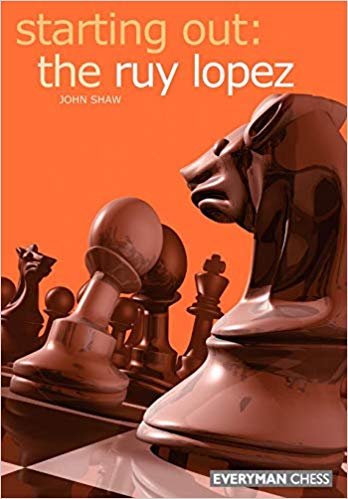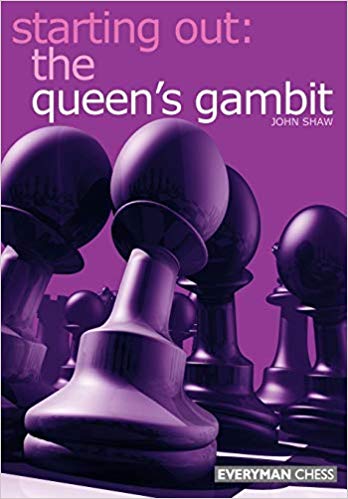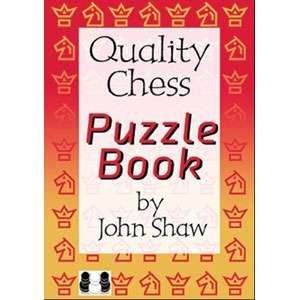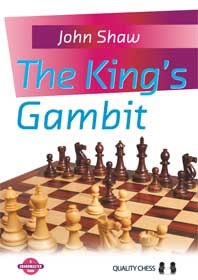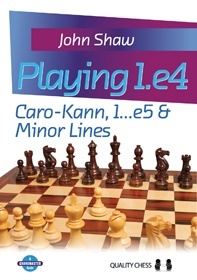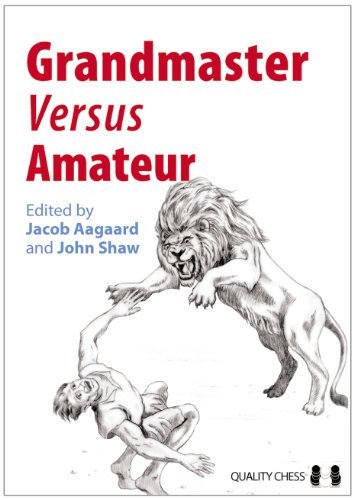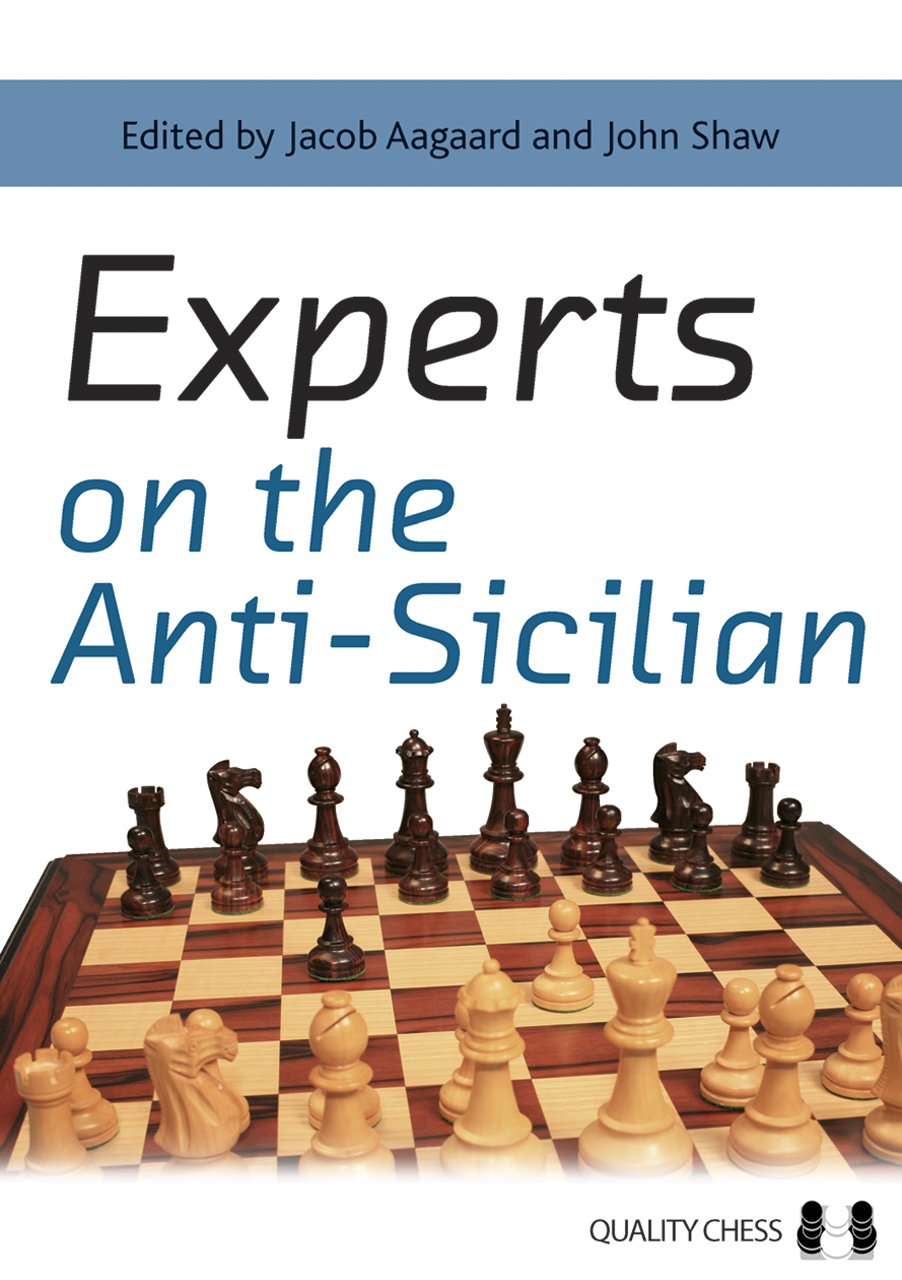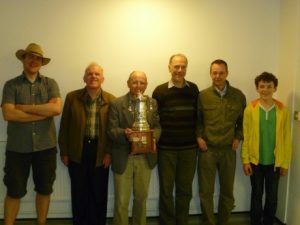
We wish IM Philip J Morris all the best on his birthday, this day (November 5th) in 1967.
Phil plays regularly for Beckenham & Charlton Chess Club in the London Chess League and has played for Invicta Knights Maidstone in the Four Nations League.

We wish IM Philip J Morris all the best on his birthday, this day (November 5th) in 1967.
Phil plays regularly for Beckenham & Charlton Chess Club in the London Chess League and has played for Invicta Knights Maidstone in the Four Nations League.
We wish IM Philip J Morris all the best on his birthday, this day (November 5th) in 1967.
Phil plays regularly for Beckenham & Charlton Chess Club in the London Chess League and has played for Invicta Knights Maidstone in the Four Nations League.
We wish IM Philip J Morris all the best on his birthday, this day (November 5th) in 1967.
Phil plays regularly for Beckenham & Charlton Chess Club in the London Chess League and has played for Invicta Knights Maidstone in the Four Nations League.
We wish IM Philip J Morris all the best on his birthday, this day (November 5th) in 1967.
Phil plays regularly for Beckenham & Charlton Chess Club in the London Chess League and has played for Invicta Knights Maidstone in the Four Nations League.
We wish IM Philip J Morris all the best on his birthday, this day (November 5th) in 1967.
Phil plays regularly for Beckenham & Charlton Chess Club in the London Chess League and has played for Invicta Knights Maidstone in the Four Nations League.
We send birthday wishes “down under” to IM Gary Lane on his birthday.
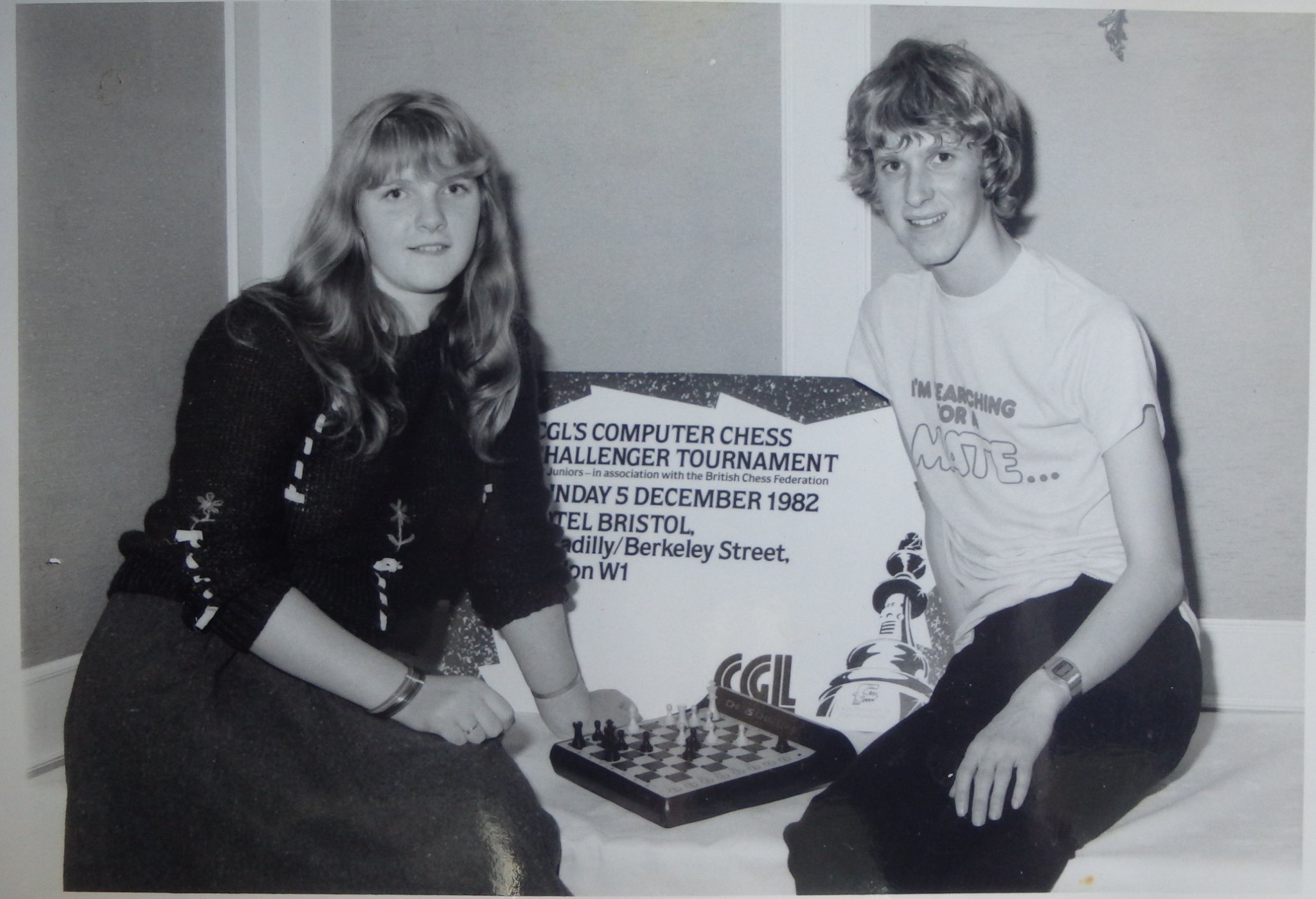
Gary William Lane was born this day (November 4th) in 1964 in Paignton, Devon.
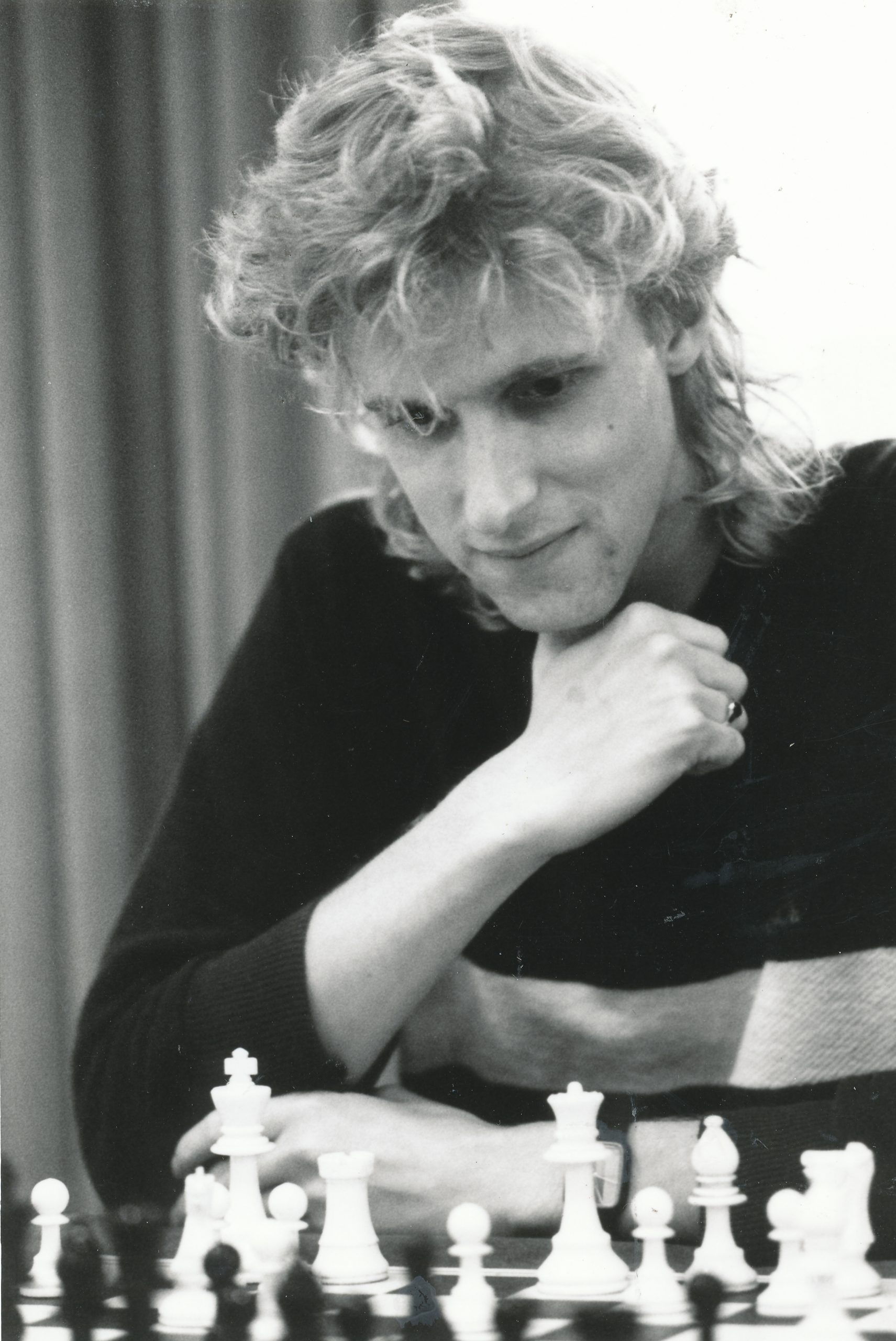
Gary lived in Brixham, Devon and attended Churston Ferrers Grammar School (also in Brixham) leaving in 1983.
Gary became a FIDE Master in 1984 and an International Master in 1987 and won the Commonwealth Chess Championship in 1988. According to Felice and Megabase2020 his peak FIDE rating was 2464 in July 2001 aged 37.
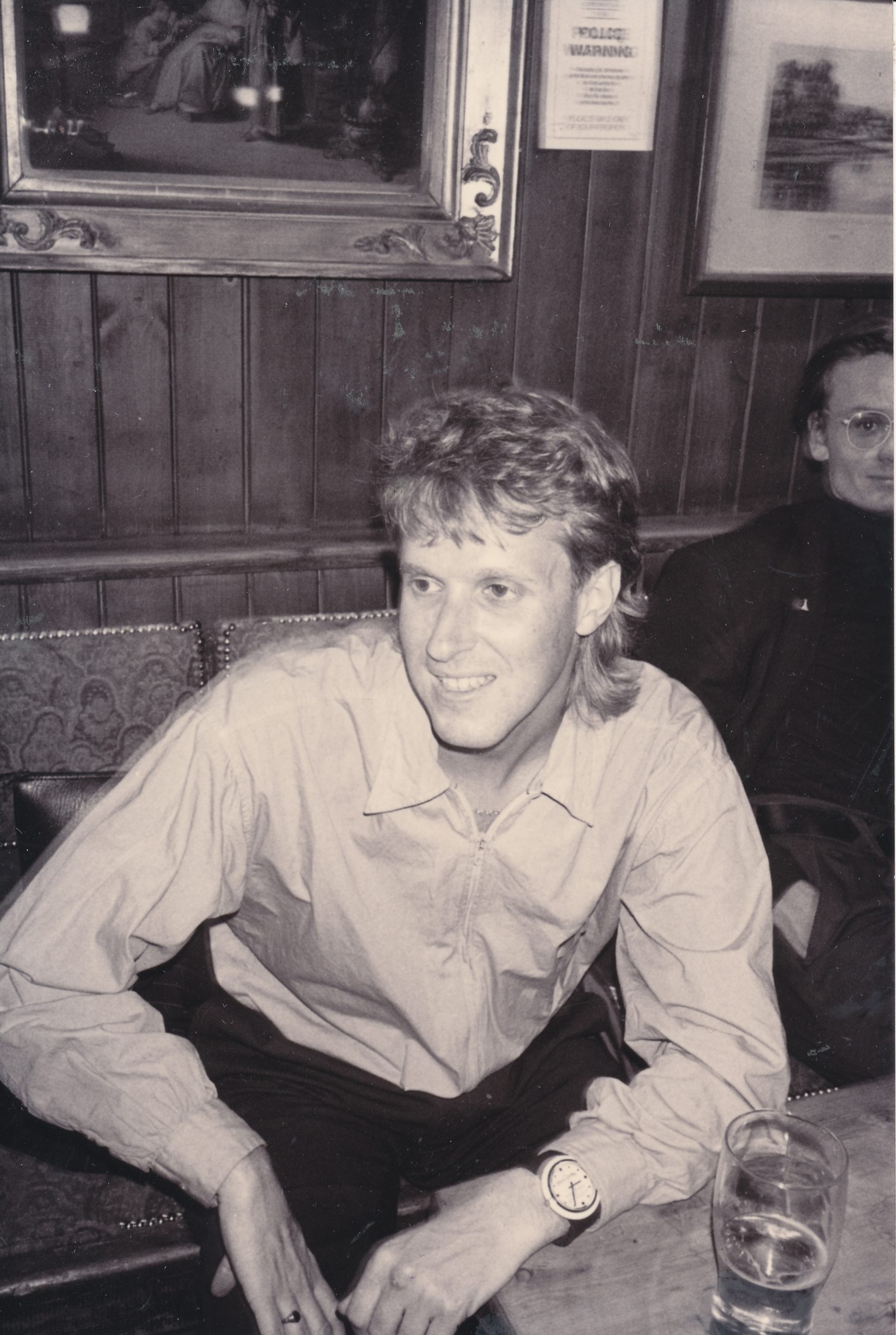
This was written about Gary aged 14 prior to the 1979 Spassky vs the BCF Junior Squad simultaneous display :
“Churston Grammar and Paignton. Rating 173. BCF Junior squad U-14 co-champion, 1978.”
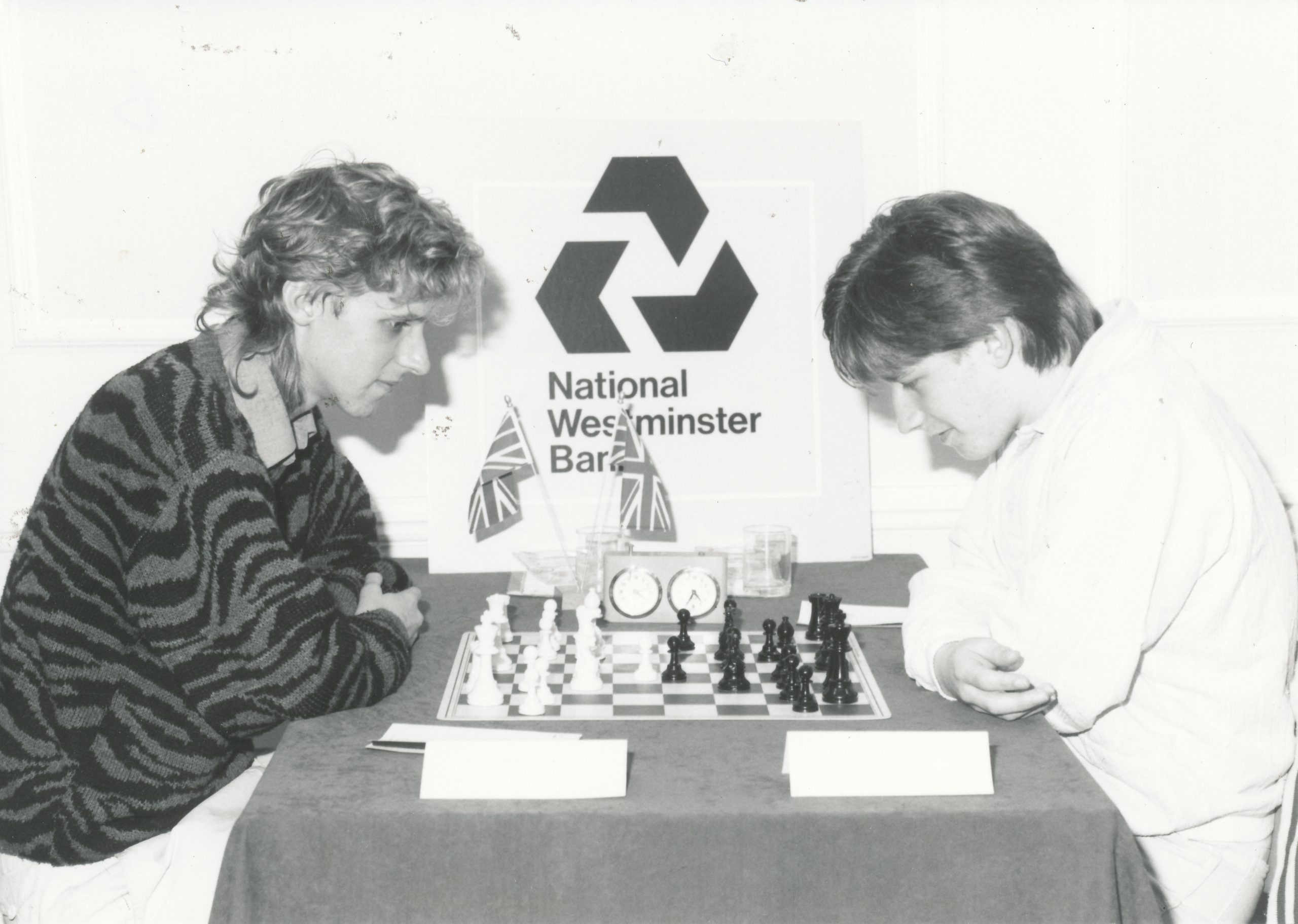
In 2004 won the Australian Championship and was voted Player of the Year. According to Sharpen Your Chess Tactics Gary is a well-known trainer, and has been involved in coaching some of England and Australia’s top junior players.
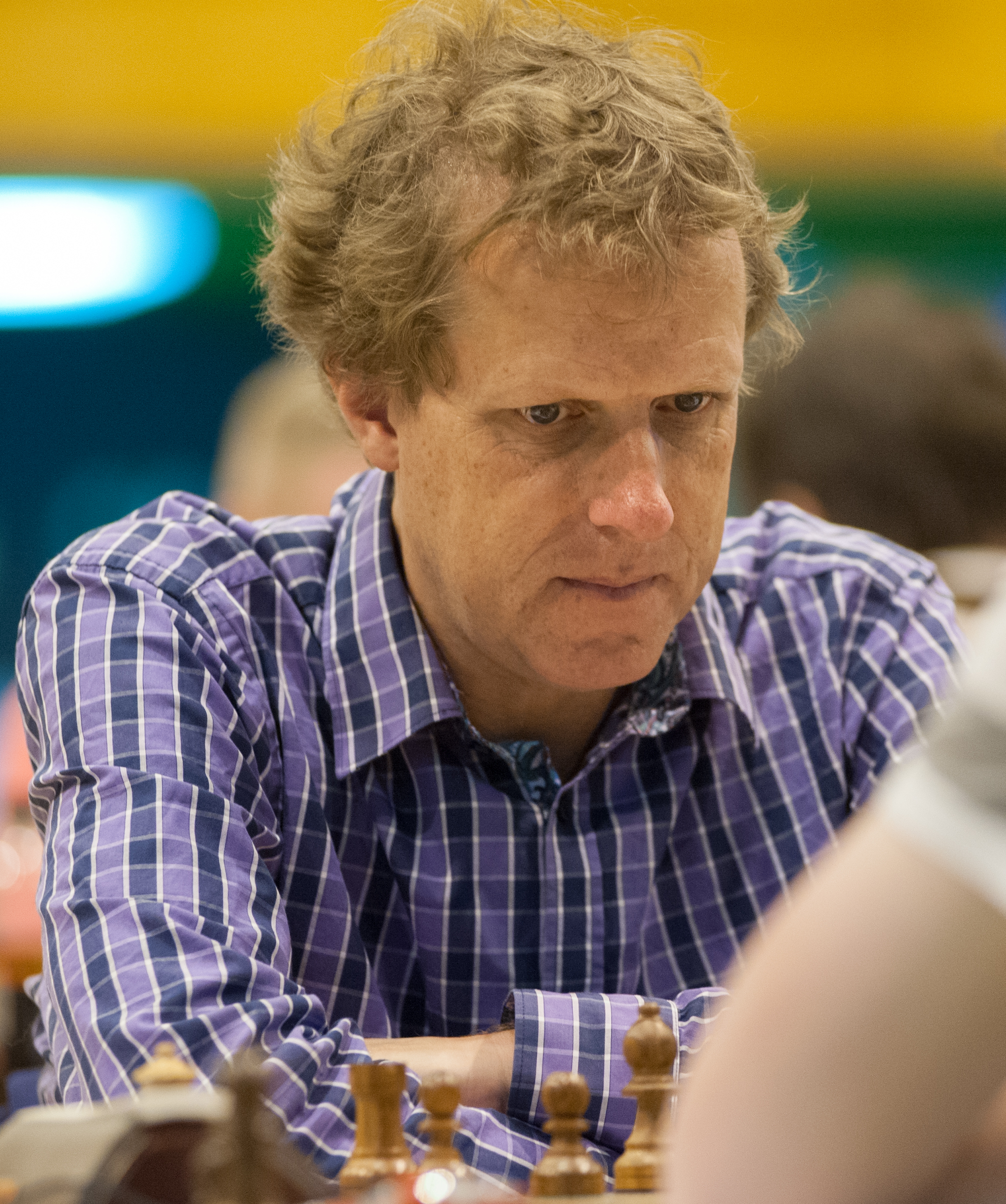
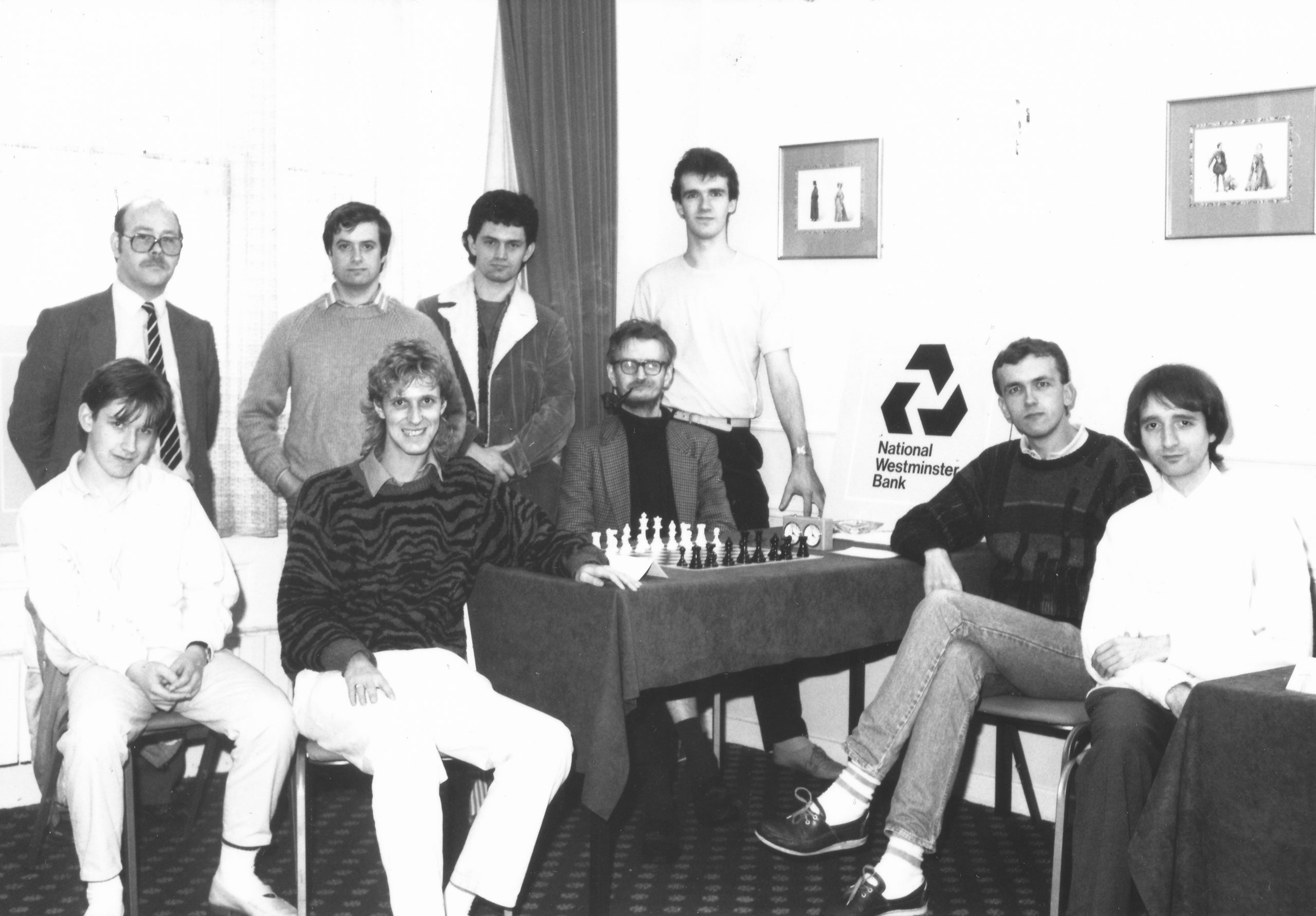
From Wikipedia :
“Gary William Lane (born 4 November 1964) is a professional chess player and author. He became an International Master in 1987 and won the Commonwealth Chess Championship in 1988. He has written over thirty books on chess, including Find the Winning Move, Improve Your Chess in 7 Days and Prepare to Attack. There have been translations in French, Italian, Portuguese and Spanish. In the 1980s the ITV documentary “To Kill a King” was screened nationwide in Great Britain. It featured a young Michael Adams and Lane. This feature is shown regularly at chess film festivals.”

“After his marriage to Woman International Master Nancy Jones, he moved to Australia, winning the Australian Chess Championship in 2004. He won the 2005 Oceania Chess Championship and represented Oceania at the Chess World Cup 2005.
He has also represented Australia in the 2002, 2004, and 2006 Chess Olympiads. In the 2004 Olympiad he helped Australia score a 2–2 draw with his former country England, scoring a decisive win over Nigel Short.[ He has been a chess coach for England or Australia at the World Junior and also European Junior championship for over a decade.”
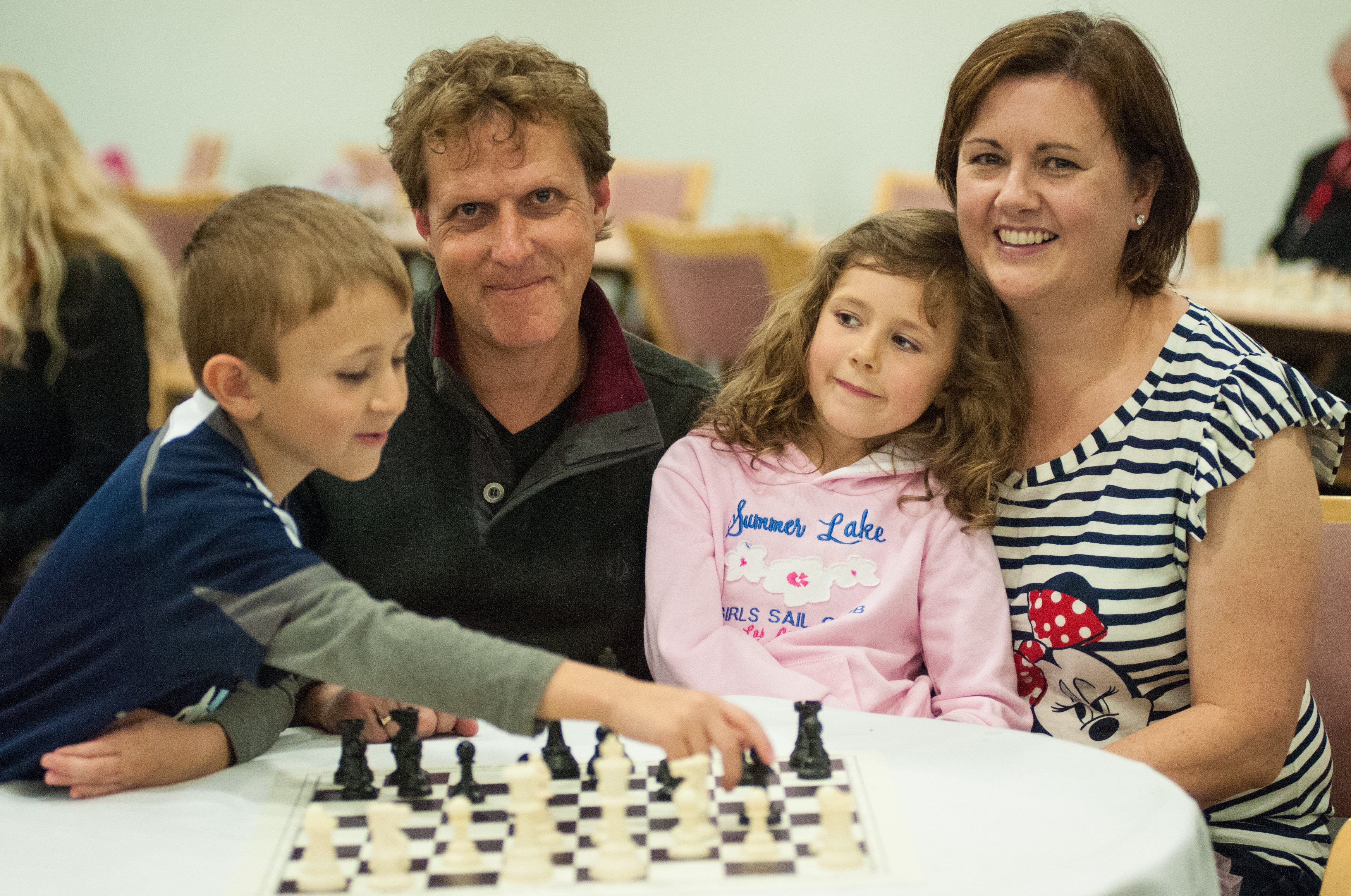
“In 2012 he won the George Trundle Masters in Auckland, New Zealand with a score of 7/9,[4] and the NZ South Island Championships in Dunedin, with a score of 8/9.[5] He was unbeaten in both events.
In 2015 at the Australian tournament the Doeberl Cup he beat Loek van Wely the reigning Dutch Champion and one of the world’s leading players. He played the Closed Sicilian which he has also written about in two books. In 2016 he came =1st at George Trundle Masters in Auckland, New Zealand with a score of 7/9, and followed this up with =1st place scoring 8/9 at the NZ South Island Championships in Canterbury. He did not lose any games in the two events. At the 2nd Fiji International Open Chess Tournament Lane dominated the event winning with the perfect score of 7/7. A score of 9/9 and clear first place was the result at the 1st Fiji International Rapid Open.
Lane is a supporter of Torquay United F.C. ”
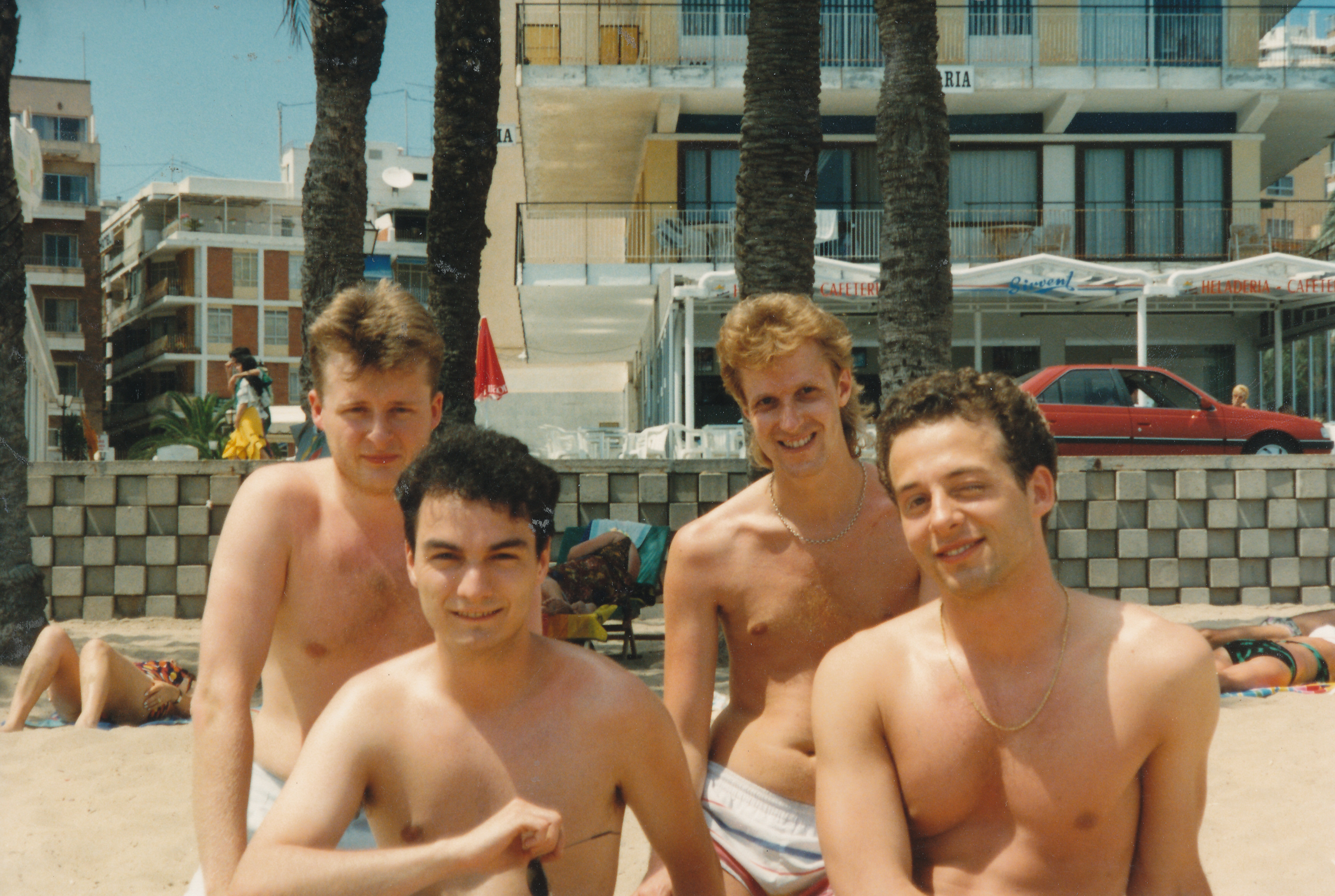
Gary has written almost 30 chess books :
(1990) The C3 Sicilian: Analysis and Complete Games. The Crowood Press. ISBN 978-1-852233-18-1.
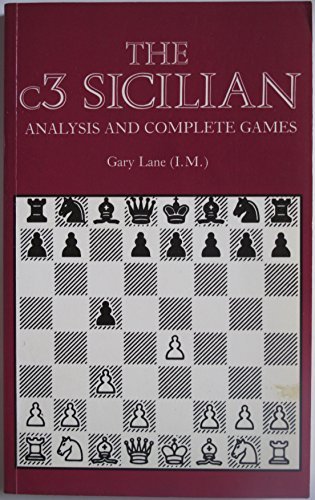
Lane, Gary (1991). The Ruy Lopez for the Tournament Player. Batsford. ISBN 978-0-713468-12-0.
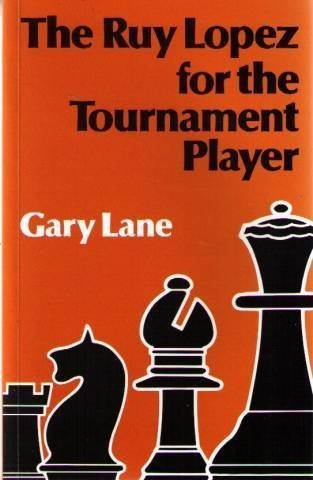
Lane, Gary (1992). Winning with the Closed Sicilian. Batsford. ISBN 978-0-713469-72-1.

Lane, Gary (1993). Winning with the Bishop’s Opening. Batsford. ISBN 978-0-713471-13-7.

Lane, Gary (1993). Winning with the Scotch. Henry Holt. ISBN 0-8050-2940-0.
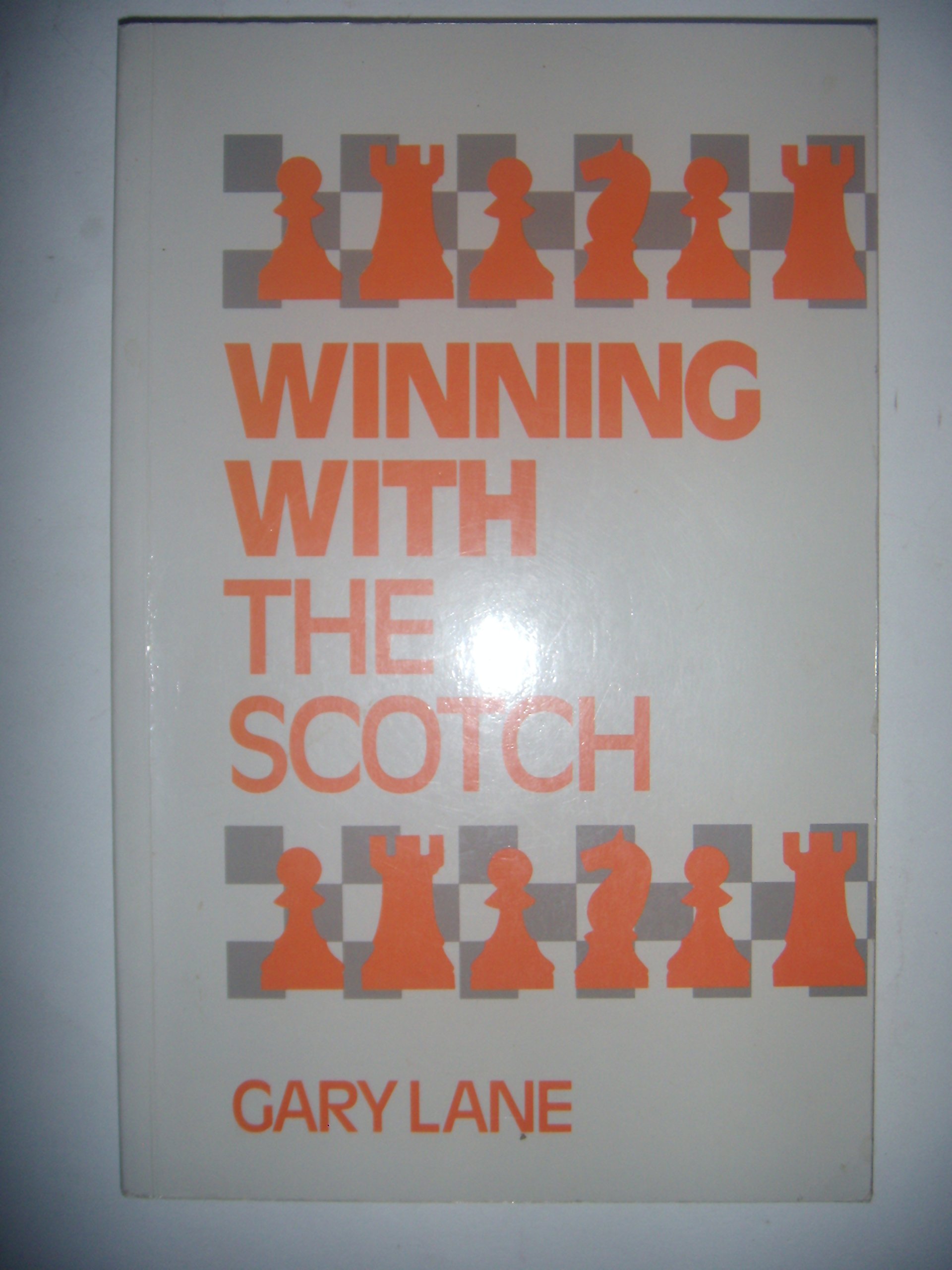
Lane, Gary (1994). Beating the French. Batsford. ISBN 978-0-713473-90-2.
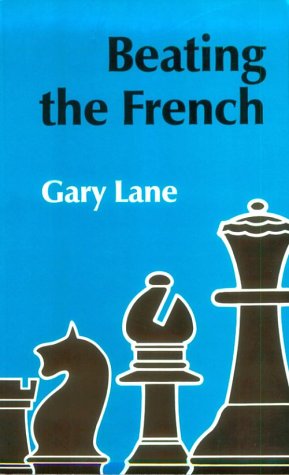
Lane, Gary (1994). Winning with the Fischer-Sozin Attack. Batsford. ISBN 978-0-713475-80-7.
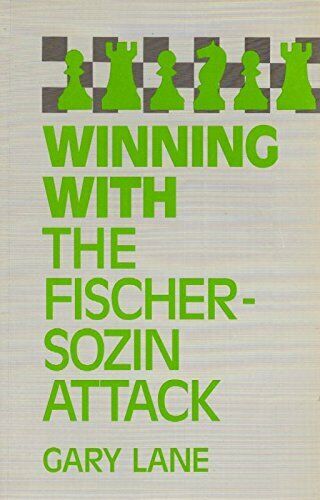
Lane, Gary (1995). Blackmar–Diemer Gambit. Batsford Chess Library / An Owl Book / Henry Holt and Company. ISBN 0-8050-4230-X.
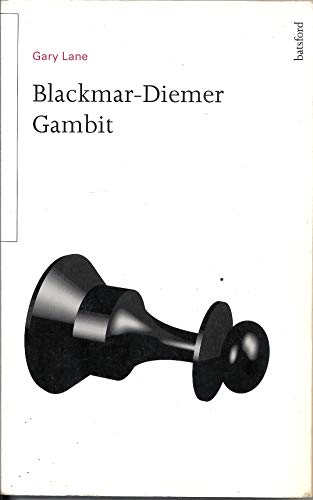
Lane, Gary (1996). A Guide to Attacking Chess. B.T.Batsford Ltd. ISBN 0-7134-8010-6.
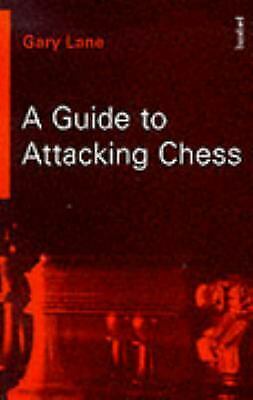
Lane, Gary (1997). The Grand Prix Attack: attacking lines with f4 against the Sicilian. Batsford. ISBN 0-8050-2940-0.
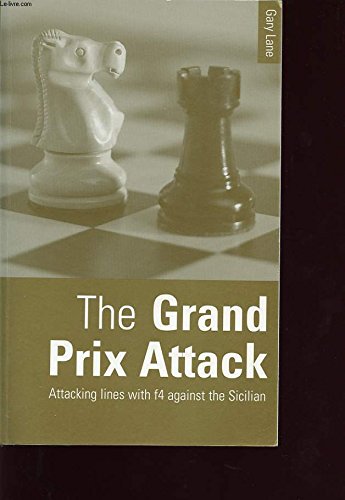
Lane, Gary (1999). Victory in the Opening. Sterling Pub Co Inc. ISBN 9780713484274.
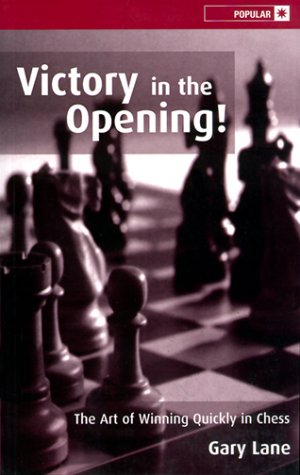
Lane, Gary (2000). The Vienna Game. Everyman Chess. ISBN 0-8050-2940-0.
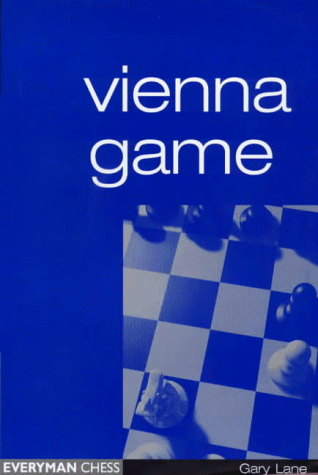
Lane, Gary (2001). The Ultimate Colle. Sterling Pub Co Inc. ISBN 9780713486865.
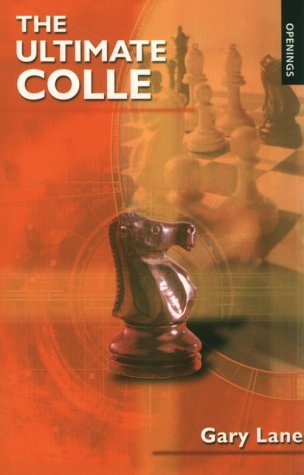
Lane, Gary (2001). The Ultimate Closed Sicilian. Batsford. ISBN 978-0-713486-87-2.
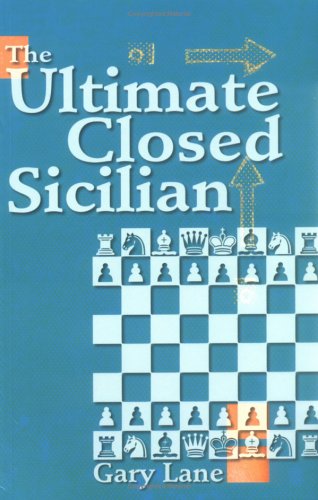
Lane, Gary (2003). Ideas Behind the Modern Chess Openings: Attacking With White. Batsford. ISBN 9780713487121.
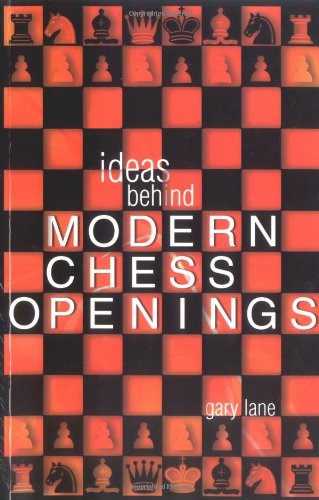
Lane, Gary (2003). Find the Checkmate. Batsford. ISBN 0-8050-2940-0.
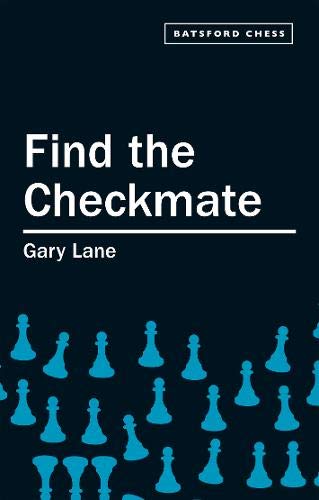
Lane, Gary (2004). The Bishop’s Opening Explained. Batsford. ISBN 0-7134-8917-0.
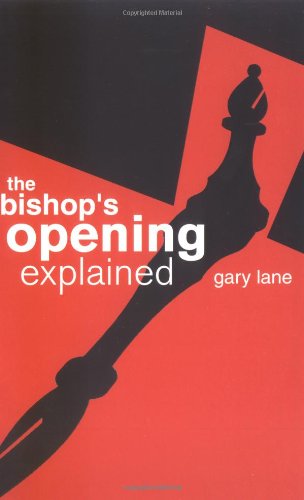
Lane, Gary (2004). ‘Find the Checkmate. Batsford. ISBN 978-0-713488-61-6.
Lane, Gary (2004). Playing Chess: Step by Step. Mud Puddle Books. ISBN 978-1-594120-55-8.
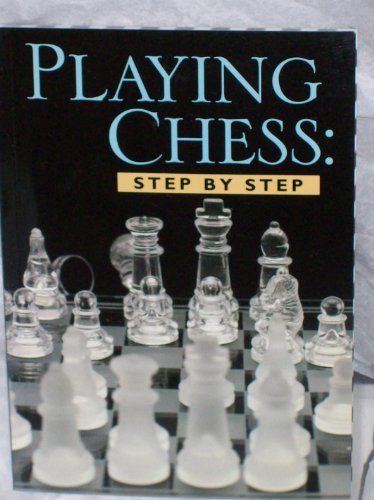
Lane, Gary (2005). Ideas Behind Modern Chess Openings: Black. Batsford. ISBN 9780713489507.
Lane, Gary (2005). The Scotch Game Explained. Batsford. ISBN 0-7134-8940-5.
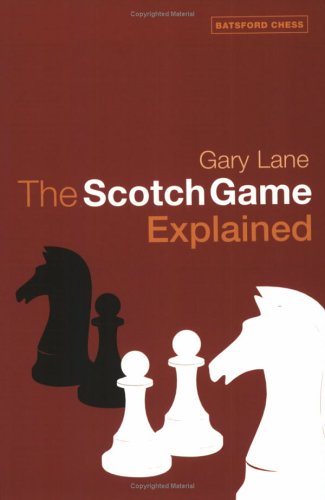
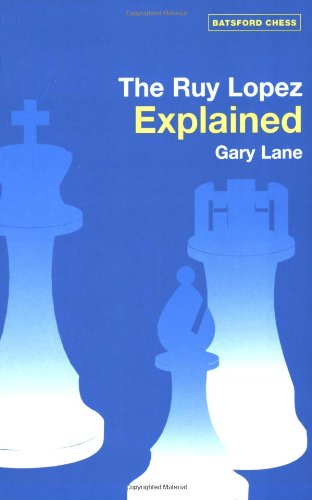
Lane, Gary (2007). Improve Your chess In 7 Days. Batsford. ISBN 978-0-7134-9050-3.
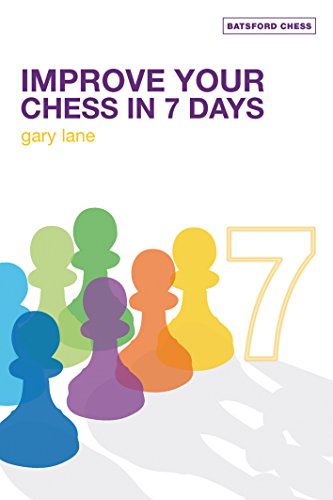
Lane, Gary (2008). The Greatest Ever Chess Tricks and Traps. Everyman Chess. ISBN 9781857445770.
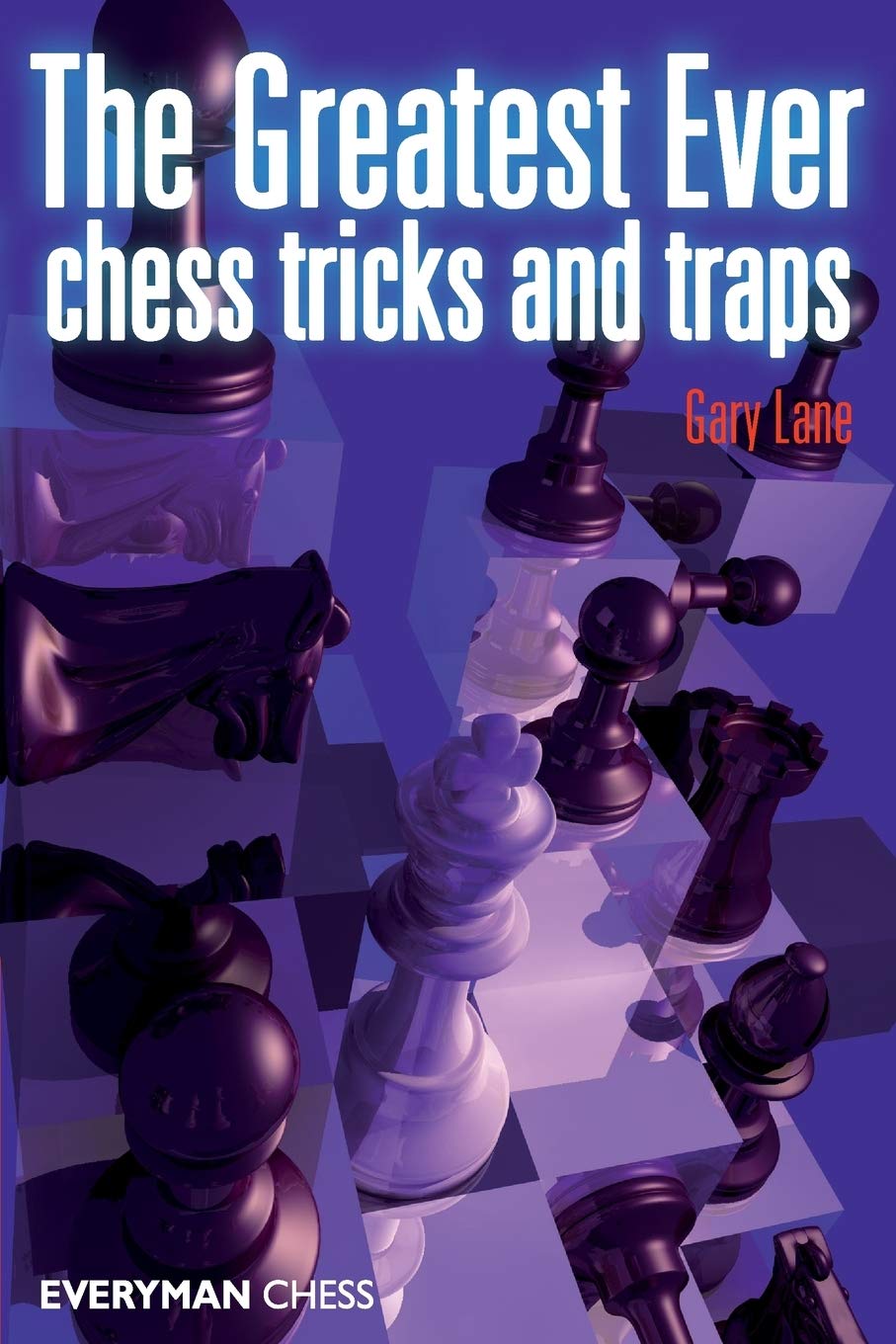
Lane, Gary (2009). Sharpen Your Chess Tactics in 7 Days. Batsford. ISBN 9781906388287.
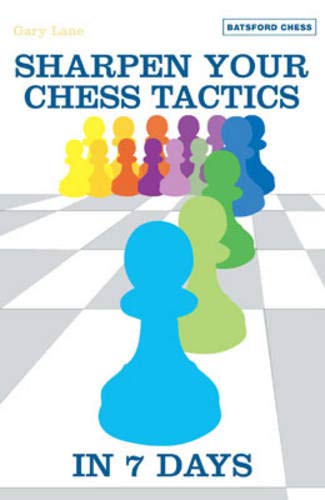
Lane, Gary (2011). Prepare to Attack. Everyman Chess. ISBN 978-1857446500.
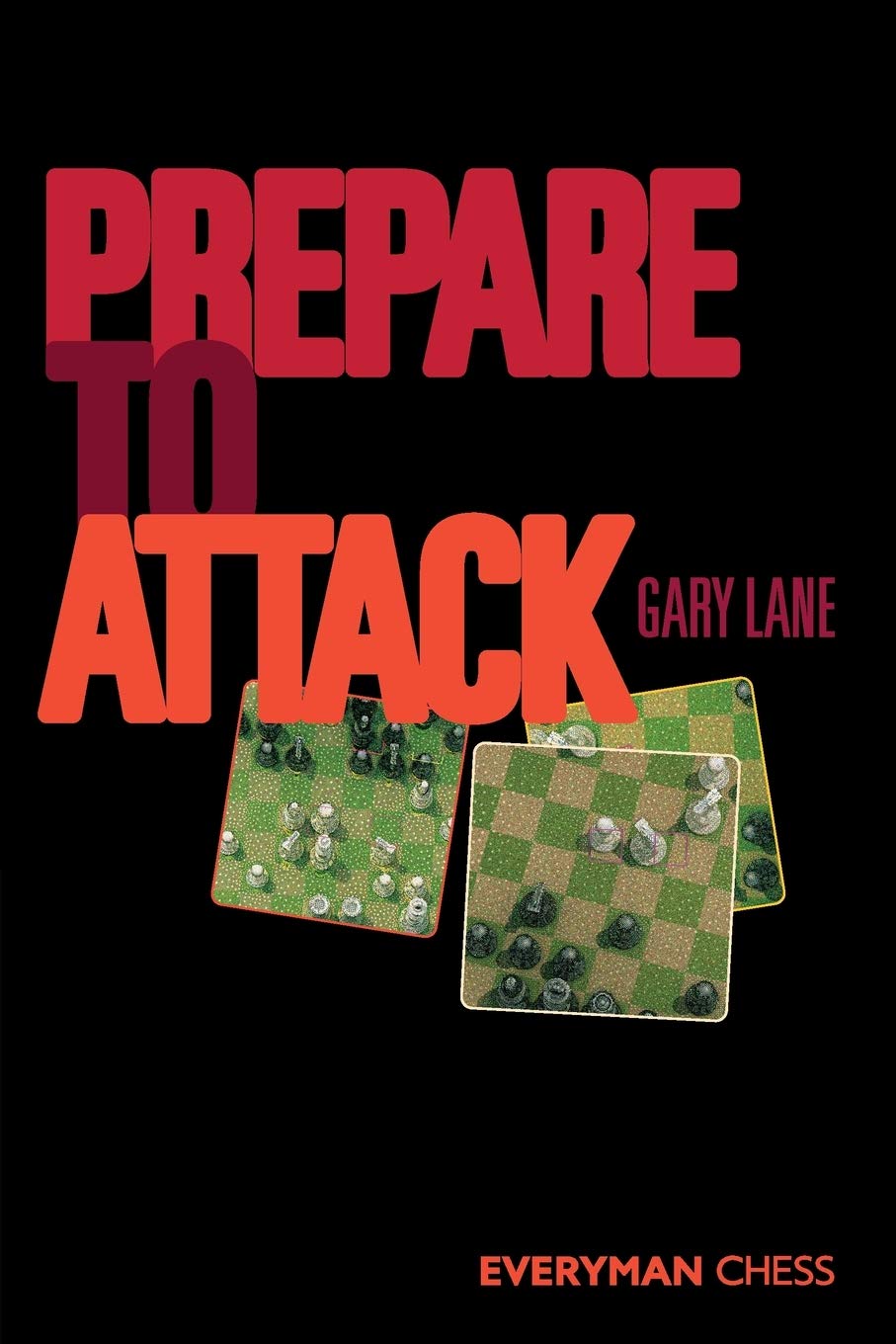
Lane, Gary (2013). Gary Lane’s Chess Puzzle Book. e+books. ISBN 978-1-927179-14-7.
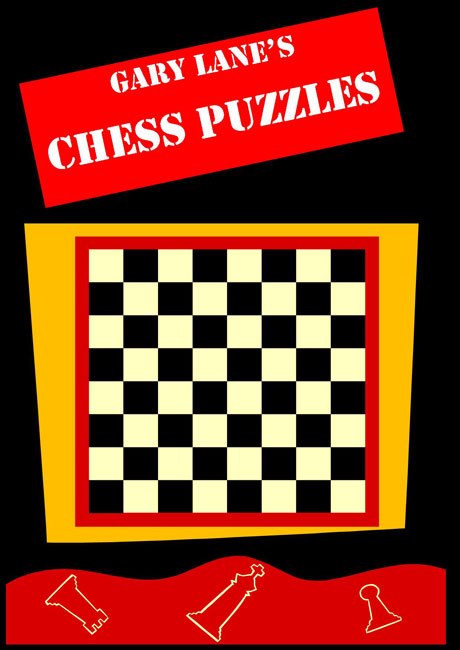
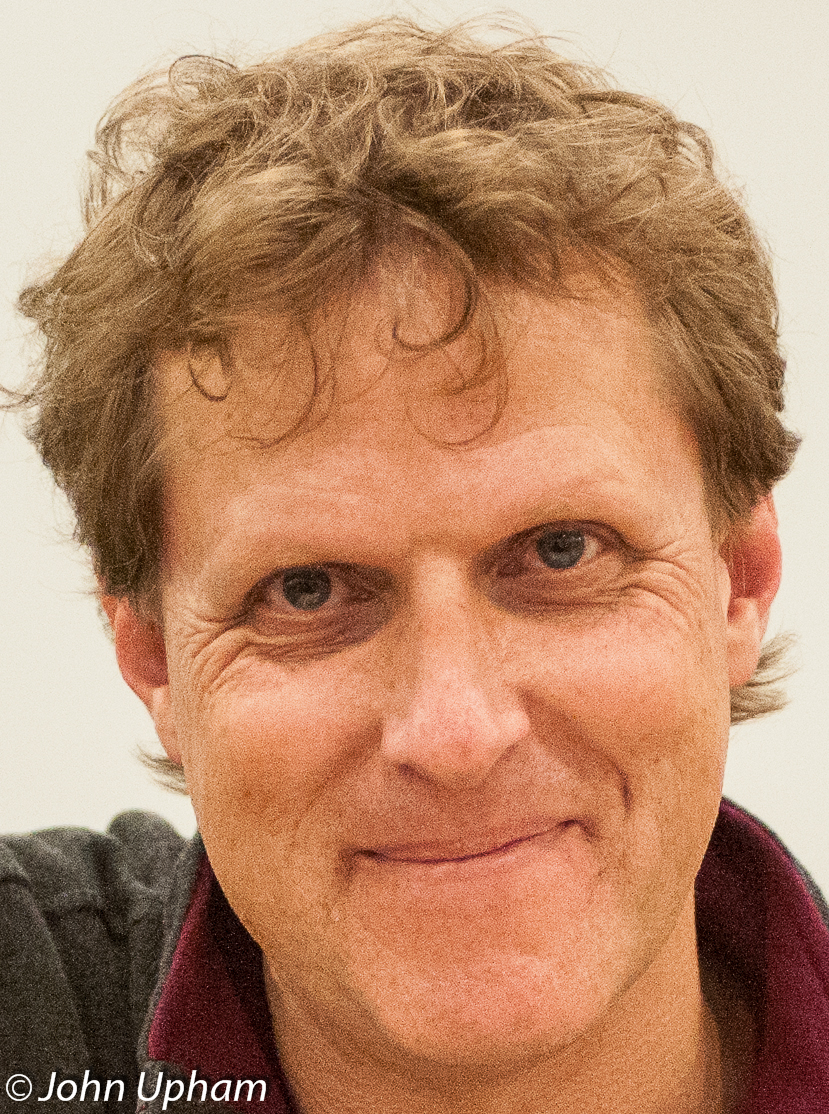
We remember Reginald Broadbent who passed away on October 29th 1988.
Reginald Joseph Broadbent was born on Friday, August 3rd 1906 (the year of the San Francisco earthquake) in Durban, South Africa. His father was Joseph Edward Broadbent (born 1879) who married Alice Cook on January 4th, 1903 in Durban.
According to the 1911 Isle of Man Census (FindMyPast, Richard James; thanks!) the Broadbent family (sans father) stayed at a guest house in Onchan on the night of February 2nd 1911. Reg (aged 4) was a boarder together with mother Alice (33), brother Roland (1) and sister Laura (4). Since Reg and Laura are both recorded as 4 years old it is reasonable to suppose that they were born as twins. We think that Reg had an additional sibling who had passed away and that the name is not recorded. Reassuringly Steve Mann agrees with this conclusion.
He married Catherine H Broadbent (née Crawford, born 19th September 1895) and were recorded as living (in 1939) in “Cheadle and Gately”, Cheshire. His profession was as a “Telephone Traffic Superintendent, Class II, Post Office Telephones” which was a a civil service occupation. Catherine carried out “unpaid domestic duties”.
They resided at 72, South Park Road, Gatley, Cheshire :

According to Steve Mann in his excellent Yorkshire Chess web site :
“At some time in 1946 or 1947, Broadbent moved down south to live in the general vicinity of East Grinstead, at Far End, Limes Estate, Felbridge, 2 miles NW of East Grinstead, and later at Southway, Priory Road, Forest Row, 3 miles SE of East Grinstead”
Reg was eight times Northern Counties Chess Union (NCCU) Champion in 1933, 1934, 1935, 1936. 1937, 1938, 1945 and 1946.
The British Chess Magazine, Volume CVIII (108, 1988), #12 (December), p. 553 records this brief death announcement :
“Reginald J. Broadbent, British Champion 1948 and 1950 died on October 29 at the age of 82. He was a member of Manchester and Bradford Chess Clubs in his day, and was famous for his remarkable record in Anglo-Dutch matches.
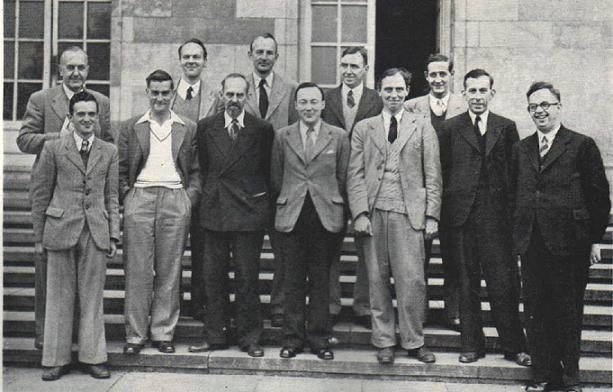
After he moved to London around 1950 he was less free to play due to his senior post with the Post Office. A fuller notice will appear next month.”
As advertised in the British Chess Magazine, Volume CIX (109, 1989), #1 (January), p. 27 we have :
“Reginald Broadbent (3 viii 1906-29x 1988) was born at Durban and was British Champion in 1948 and 1950. In the latter content he actually won his last six games in a row to reach a score of 8.5 points, ahead of Klein, Penrose and Milner-Barry. He was often spoken of as “playing himself into form” in the first half of a contest as his work as a civil servant (the GPO) did not allow him the chance to practise regularly against strong opposition.
He was a member of the Manchester and Bradford clubs before the war when he built up a fine record in Anglo-Dutch matches and Northern Counties champion on many occasions.
Brian Reilly recalls that Broadbent was selected for the BCF Olympiad side in 1954, but was forced to turn down the invitation due to the exacting nature of his work in London, and thereafter his main connection with the game was a chess column in a West of England newspaper (The Western Morning News*) . He was a subscriber to BCM right up to his death.”
*Thanks Gary Lane.
With the white pieces Broadbent was a die-hard 1.e4 player who allowed the Marshall Attack against the Ruy Lopez.
As the second player RJB defended the Nimzo-Indian Defence and played Open games.
In the March issue of CHESS for 1963, (Volume 28, Number 427, pp.147-155) William Winter wrote this:
R. J. Broadbent I consider to be typical of the best type of English amateur the Atkins type. A civil servant by profession he wins the Championship title, then retires to his country home in Surrey where he happily spends his time in gardening till the next championship comes along. Occasionally he is dragged out to play in a County match but he takes a lot of dragging. As a player he has great natural attainments and a temperament for the game, but he handicaps himself by the paucity of his opening knowledge. This compels him to start thinking almost from the word ‘go’ and the result is that he invariably gets on bad terms with his clock.
One of his great assets is his endgame in which he is perhaps superior to any practising British player. His skill in this department has rescued him from many a grim position. If he had studied the openings, and played in more tournaments, he might have gone far. As it is he is, and I fear will remain, just a first class British amateur. Probably he prefers it that way.
Here is one of his best games :
For an element of déjà vu here is RJBs obituary from the 1989 – 1990 BCF Yearbook, page 14 :
(The Yearbook editor was Brian Concannon and it would appear standard practise, at the time, not to credit or attribute sources for obituaries.)
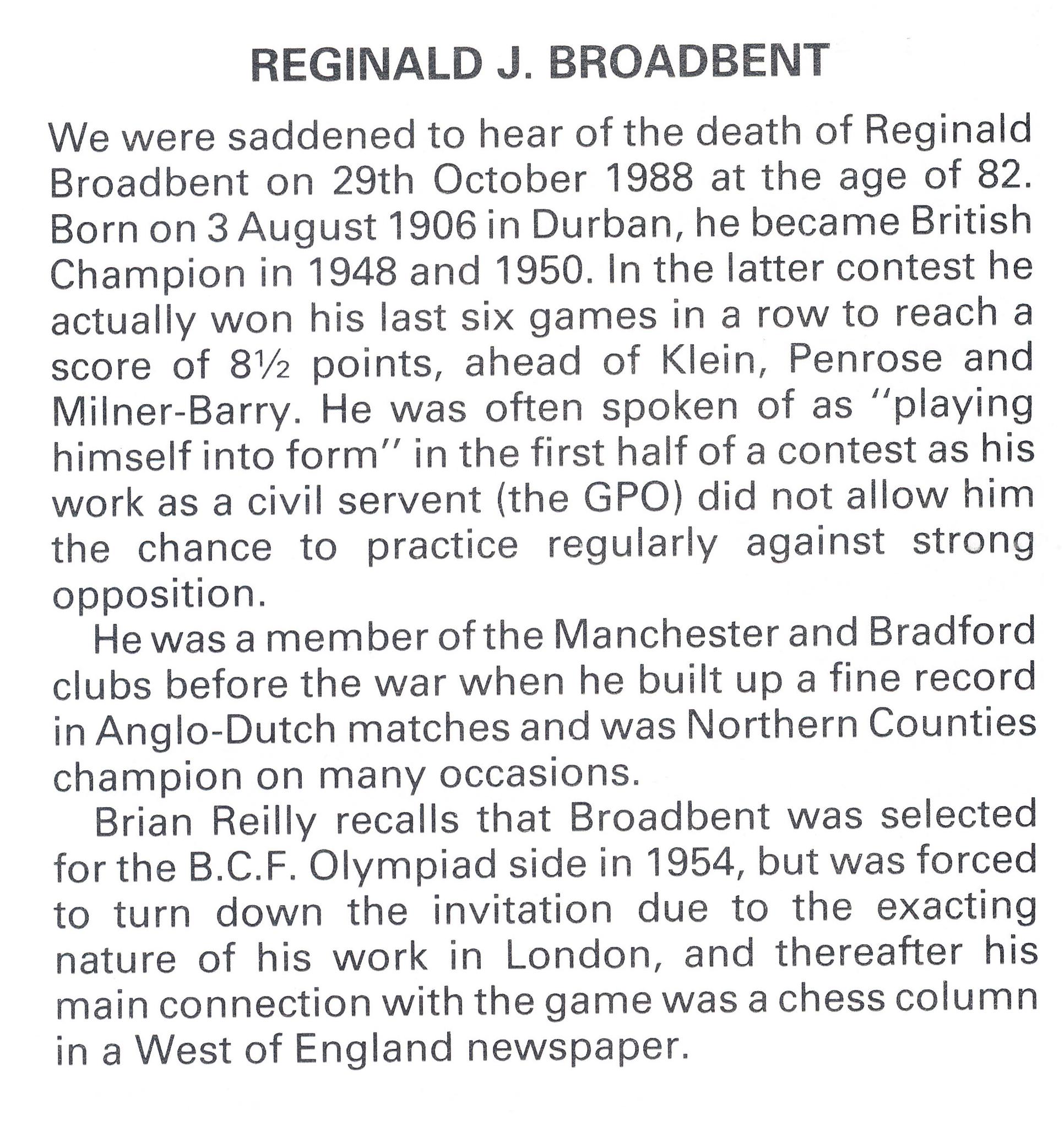
A detailed biography (from Steve Mann) may be found here
BCN wishes IM Susan Lalic Happy Birthday
Susan Kathryn Walker was born on Thursday, October 28th, 1965 in Chatham, Kent. Her mother’s maiden is / was Bacon. She has a brother, Stephen.
She attended Nonsuch High School for Girls from 1977 to 1984.
Susan married Keith Arkell in 1986 and then Bogdan Lalic in Lewes, East Sussex in 1994 and finally Graeme Buckley in Sutton in 2001.
With Bogdan she had a son, Peter D, who is a strong player in his own right.
There are ten players in MegaBase 2020 whose surname is Lalic.
She became a Woman’s FIDE Master in 1986, Woman’s International Master in 1987, Woman’s Grandmaster in 1988 and an International Master in 1996.
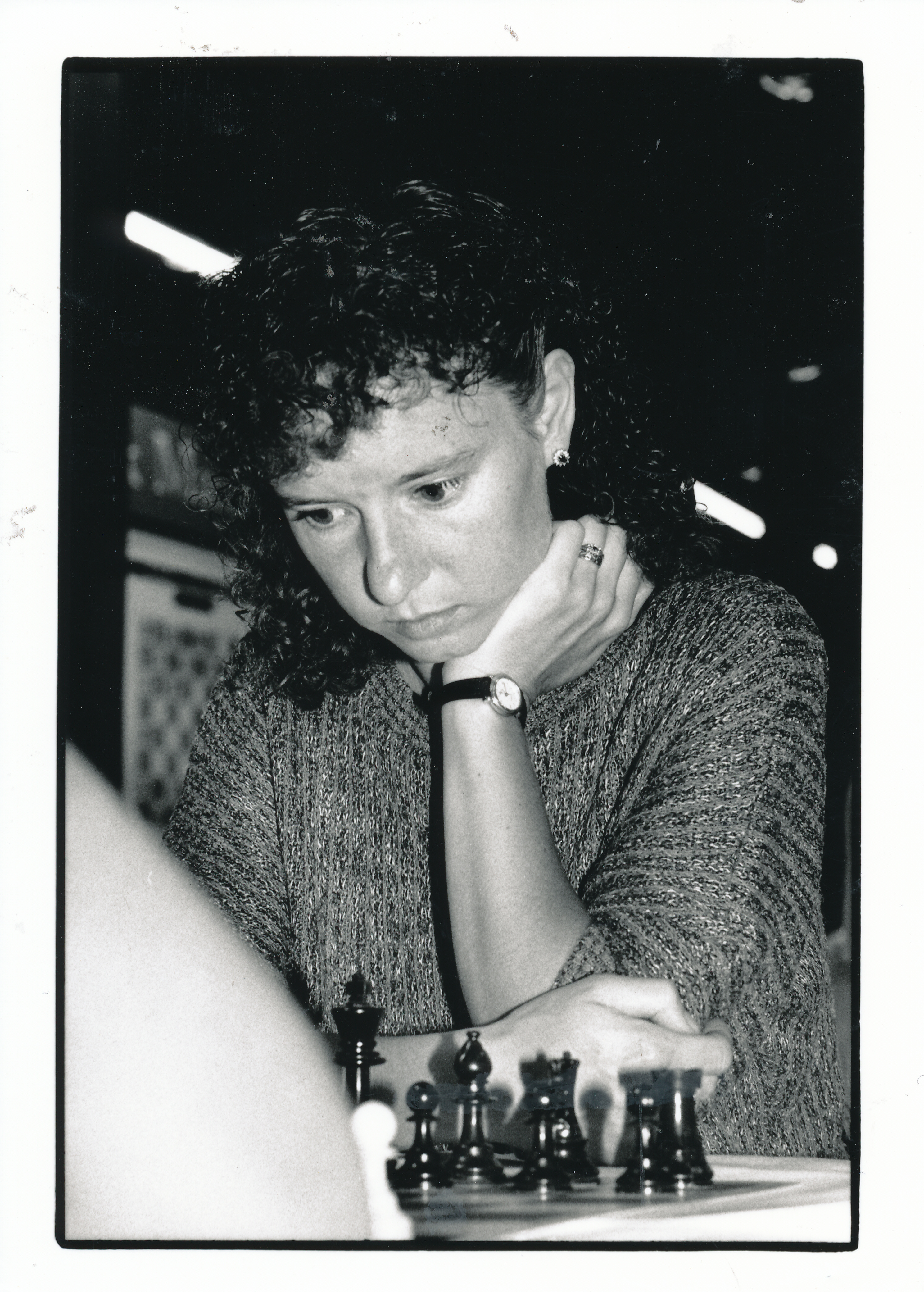
According to Felice and Megabase 2020 Susan achieved a peak rating of 2405 in January 1997 at the age of 29.
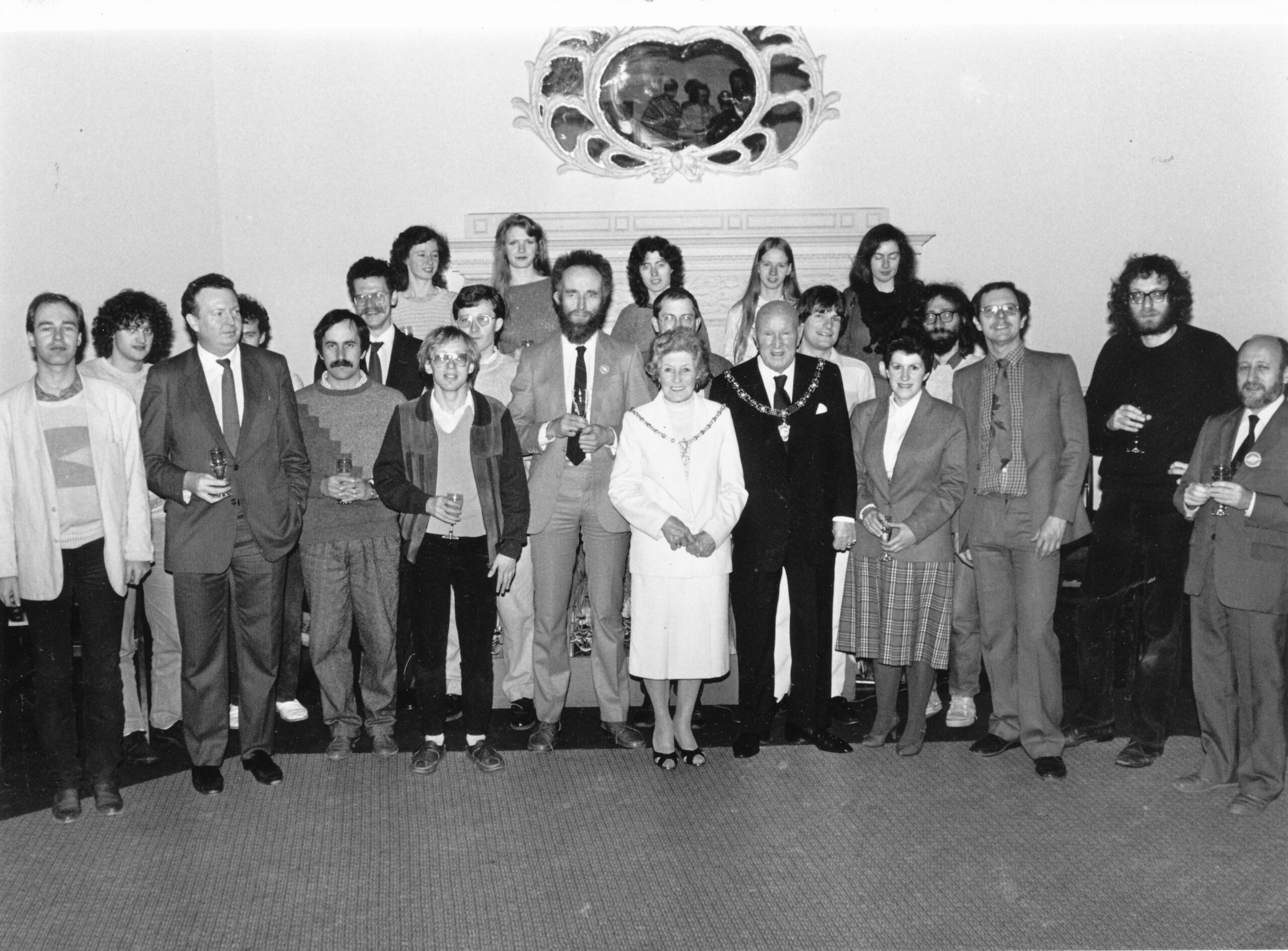
Susan has played in the Four Nations Chess League for Slough, Wood Green and Guildford and her most recent games in MegaBase 2020 are from 2012.
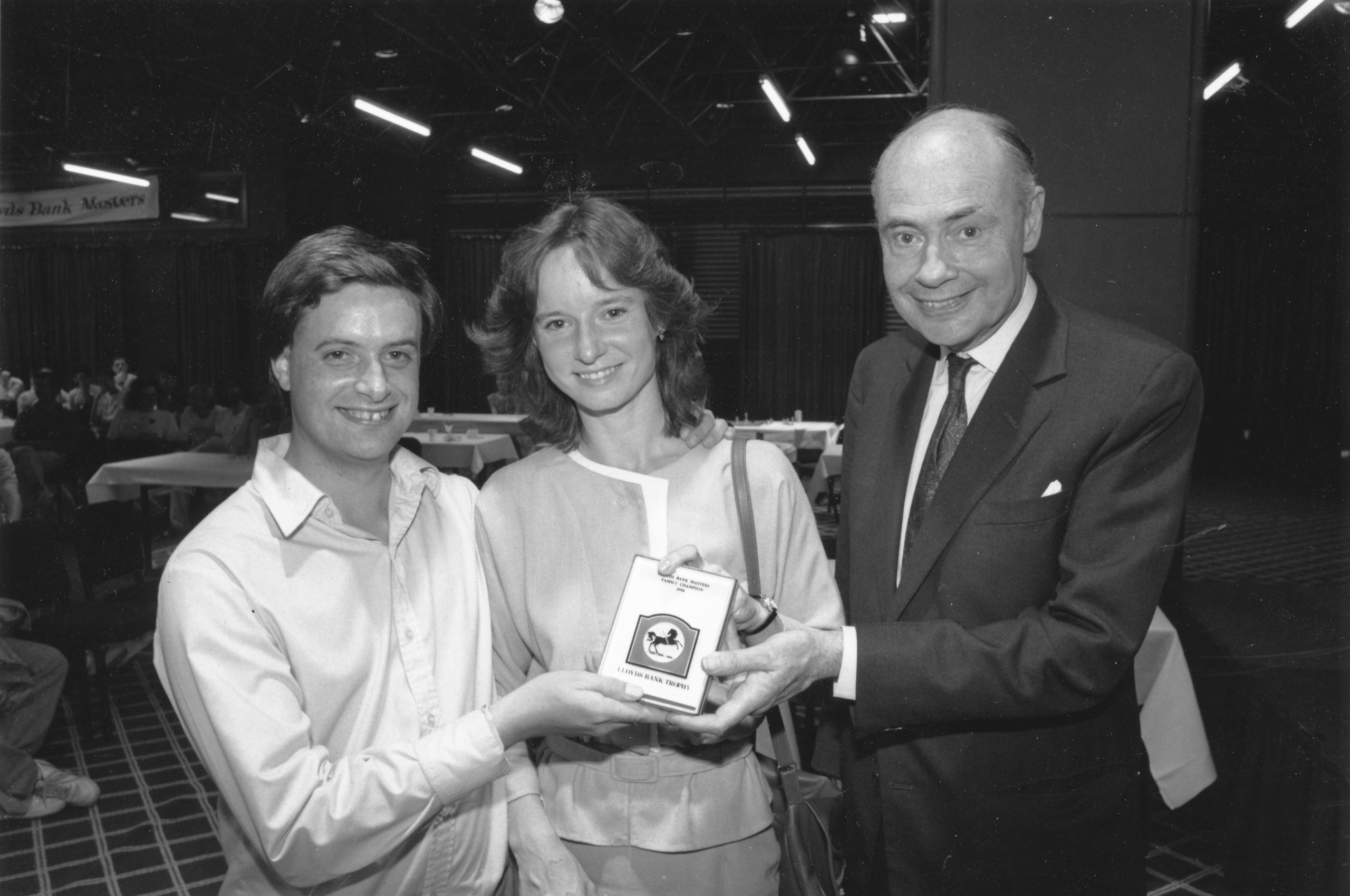
She is five-time British Women’s Champion: 1986, 1990–1992, and 1998 and has represented England in nine Olympiads.
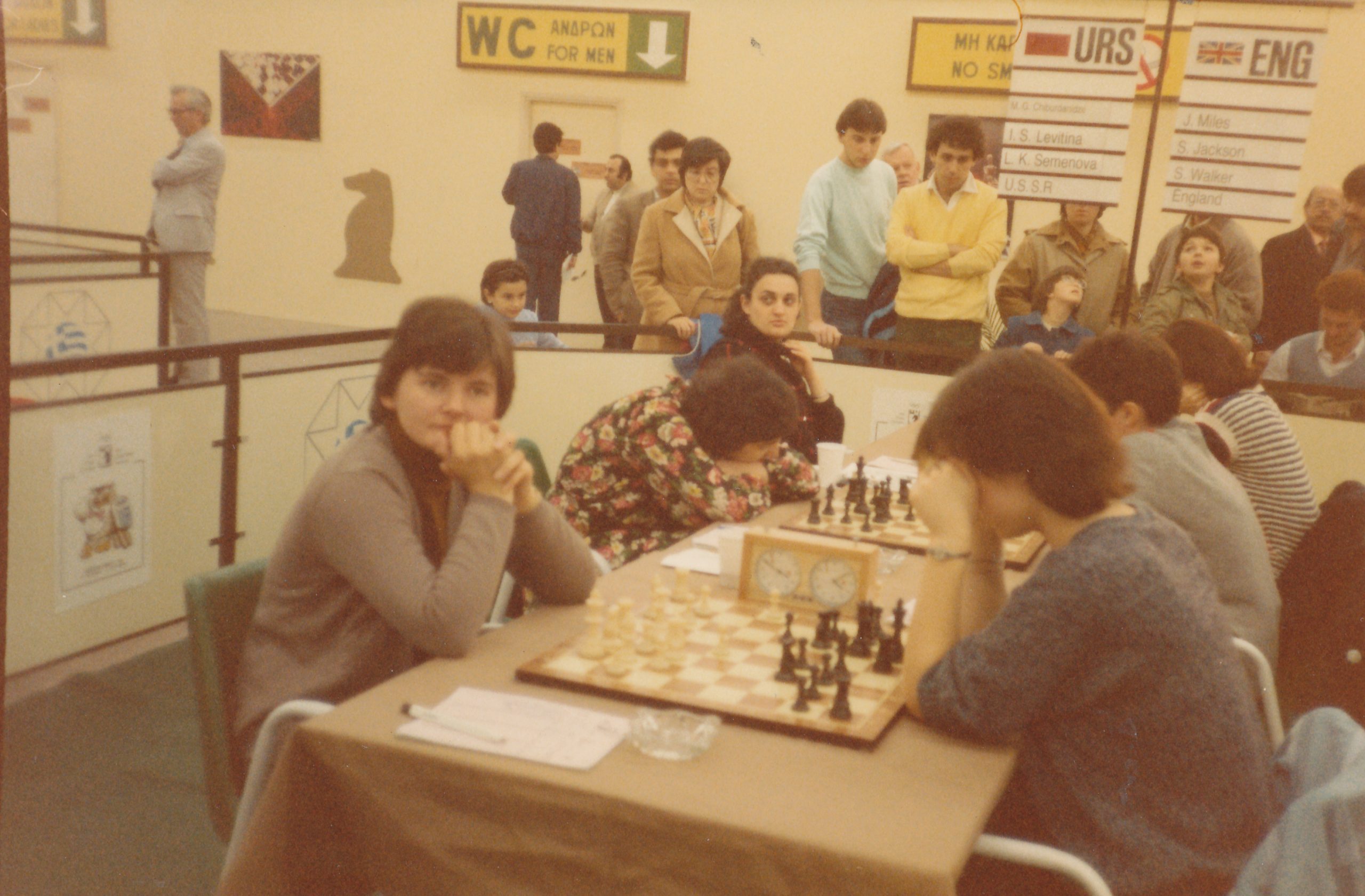
Susan is very active is Surrey junior chess and teaches in many schools.
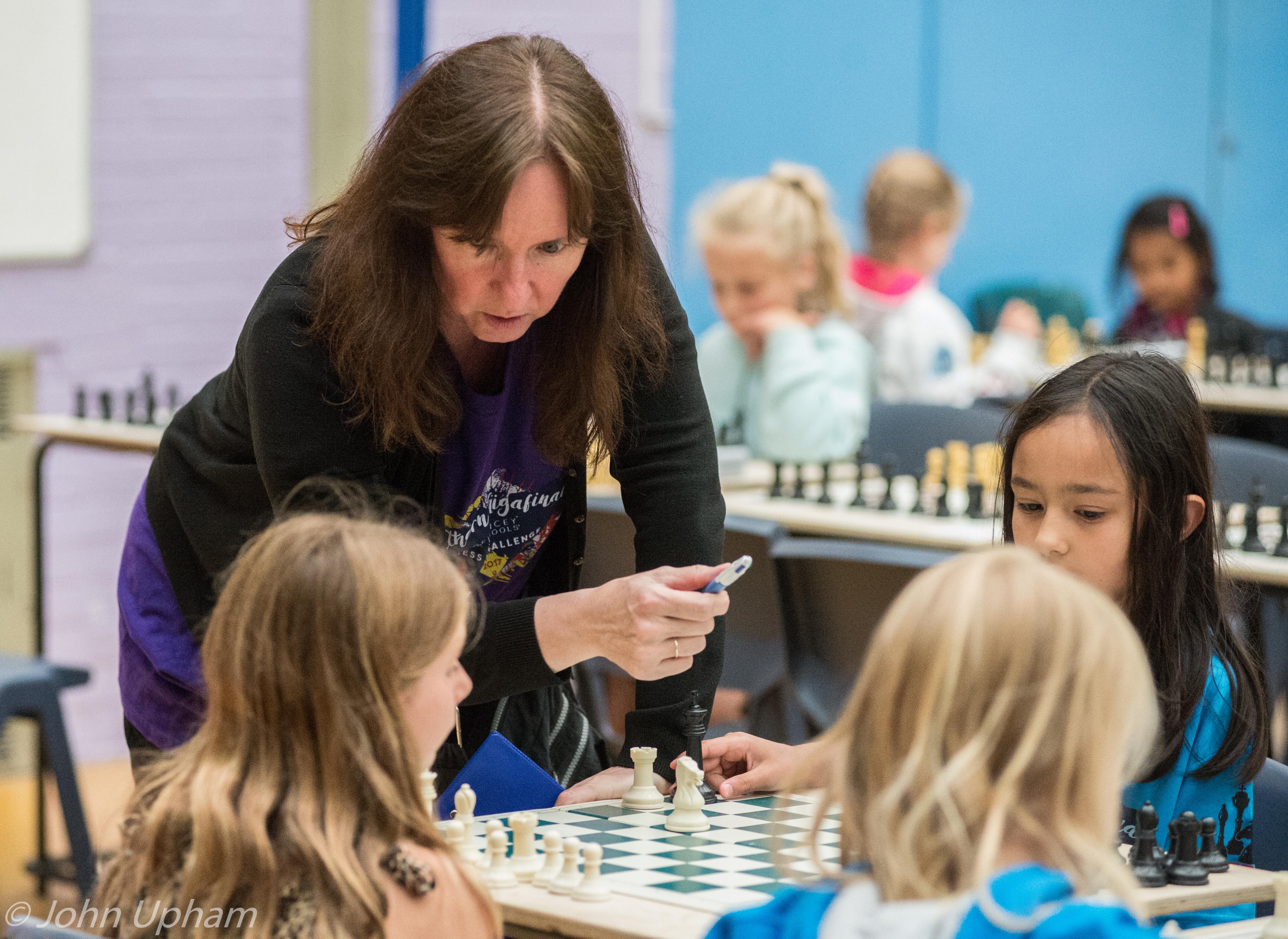
With the White pieces Susan is almost exclusively an e4 player (preferring the Scotch Game) but curiously (and why not you might ask) she has employed The Polish Opening more than once with success. She is well-known for employing the Sicilian Alapin as her main weapon against the Sicilian Defence.
As the second player she defends the Caro-Kann, Larsen-Spassky, Smyslov and the Classical Variations and the Nimzo-Indian Defence.

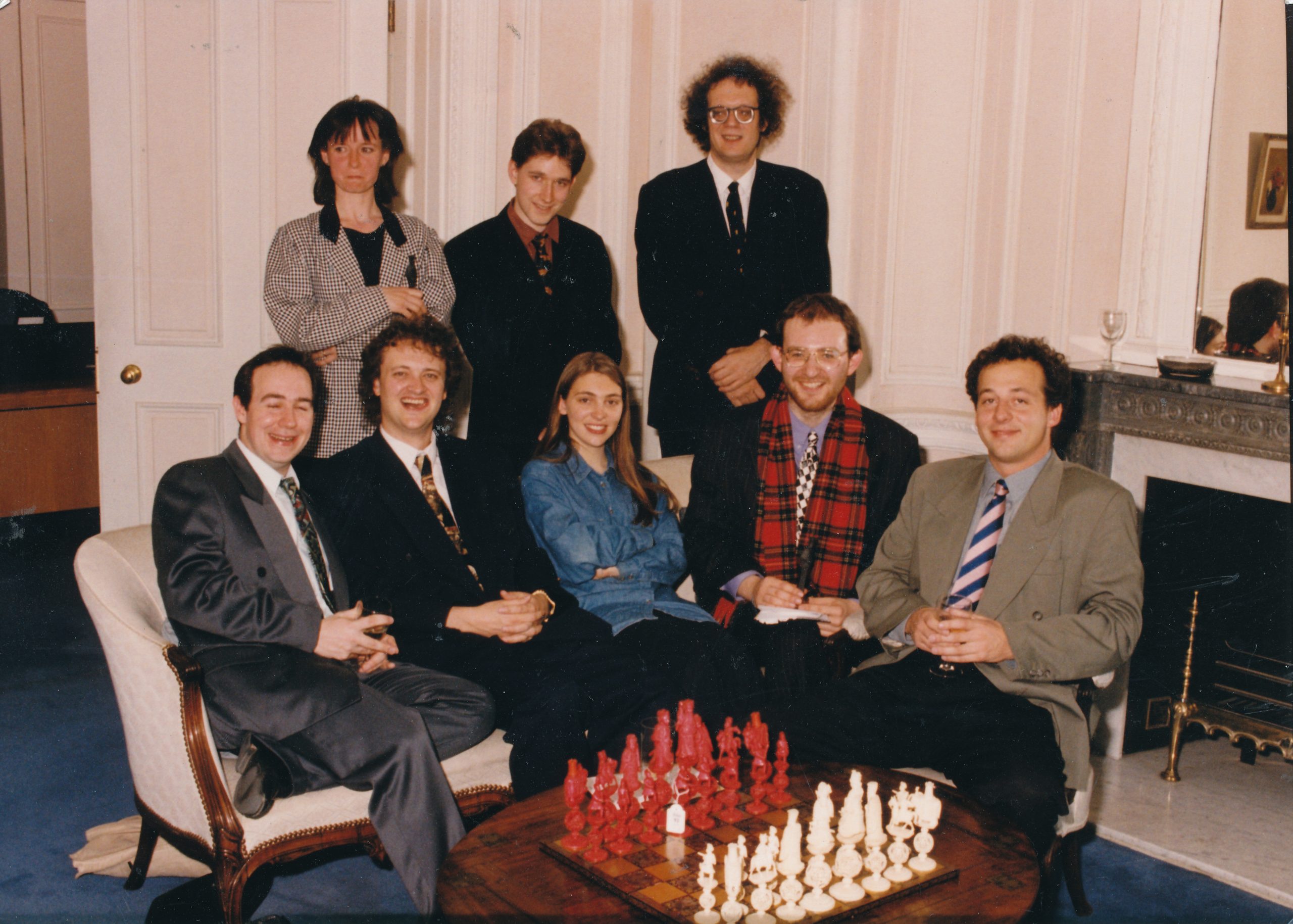
From Wikipedia :
“Susan Kathryn Lalic (née Walker; born 28 October 1965) is an English chess player, holding both International Master (IM) and Woman Grandmaster (WGM) titles. She is five-time British Women’s Chess Champion: 1986, 1990–1992, and 1998.[2]
Lalic has played for England nine times in Chess Olympiads, from 1984 to 2000, inclusive. From 1986 to 1998, she played on the top board.[3]
Lalic was educated at Nonsuch High School for Girls from 1977 to 1984, and has been married in the past to Keith Arkell and then to Bogdan Lalić. Currently she is married to International Master Graeme Buckley.[4][5]
Highest rating from 1987-2012 is 2356(within 133 games)[6]”
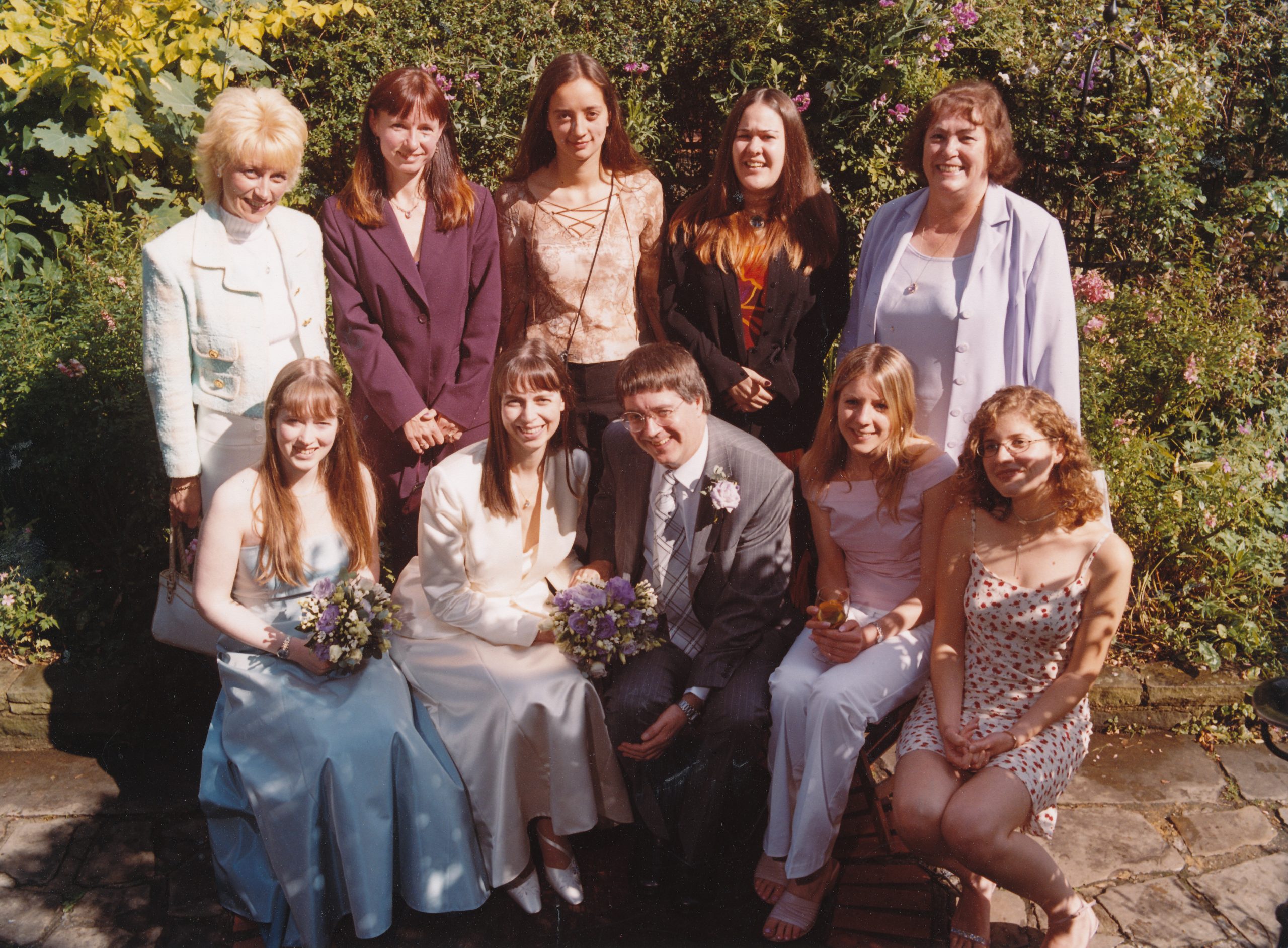
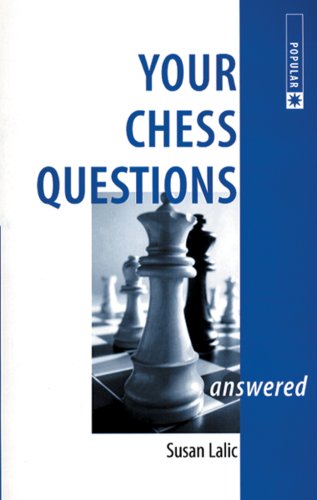
BCN remembers Sir Theodore Tylor who passed away on Wednesday, October 23rd, 1968.
Theodore Henry Tylor was born on Sunday, May 13th, 1900 in Bournville, (at the time) in northern Worcestershire. Now Bournville is in the metropolitan borough of Birmingham.
His father was Henry Bedford Tylor and his mother Minnie Belle Cater were both 29 when Theo was born. He had one sister Rachel Hope who was born on 1 November 1909 in Kings Norton, Worcestershire, when Theodore Henry was 9 years old.
In the 1911 census Theo is shown as living in Worcester as a student. His father passed away on 26 February 1915 in Birmingham, Warwickshire, at the age of 44.

In 1939 Theo was living at 2, Rawlinson Road, Oxford where he continued to live until his death.
We are grateful to John Foley writing in Floreat Domus (the Balliol College magazine) who wrote this about Tylor :
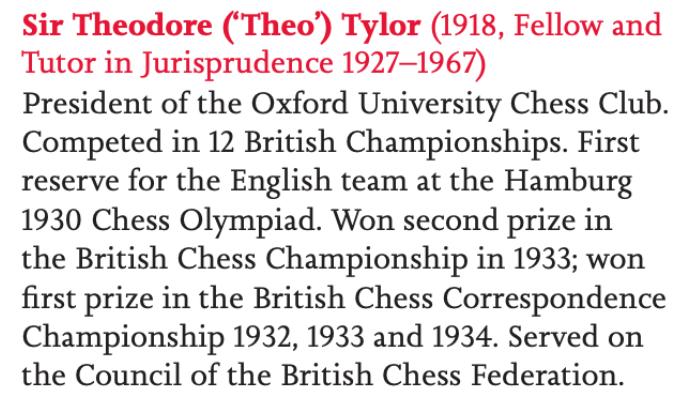
and, following this, John reproduced an item from On the Basis of of Hearsay, Grosvenor House Publishing, 2018 :

From British Chess Magazine, Volume LXXXIX (1969), Number 1 (January), pp 6-7 we have the following article :
Sir Theodore Tylor-An Appreciation
“The death of Sir Theodore H. Tylor at the age of sixty-eight was reported in The Times of October 24th. The announcement will be received with deep regret by the many chess enthusiasts who will remember him as a cheerful and extremely resourceful opponent who triumphed over the handicap of near-blindness and lived such a full and distinguished life that it earned him the admiration and respect of the world.
The Times has already done full justice to his work as Fellow and Tutor in Jurisprudence at Balliol for nearly forty years and to his service to organizations for the blind for which he was most justly knighted in 1965, but it barely mentioned that side of his life with which we chess-players were more intimately acquainted.
His education at Worcester College for the Blind naturally brought him into contact with chess and he became a very strong player. ln 1925, at the age of twenty-five, he was among the twelve players selected for the British Championship at Stratford-on-Avon and fully justified the selectors’confidence by taking fourth prize, behind Atkins, Yates, and Edmund Spencer, and ahead of Winter.
It was another four years before he became really active, but in 1929 he again played in the Championship and shared fourth prize with J. H. Morrison and W. Winter behind, Sultan Khan, H. E. Price, and R. P. Michell. He followed this with his first visit to Hastings and in the 1929-30 congress put up the best performance of his career, sharing first prize with Koltanowski, in front of Flohr, Reijifir, Rellstab, Alexander, Jackson, Noteboom, Vidmar Jnr., and Winser. This, by the way, was only a Premier Reserves!
This performance evidently impressed the selectors, for the following summer brought an invitation to play for the B.C.F. team in the Hamburg Olympiad, where he won one, drew four, and lost two games. ln the 1930-31 Hastings Congress he made the first of nine appearances in the Premier Tourney, but he never managed to maintain sufficient consistency to win honours in this exalted company and was never able to finish higher than equal sixth (in
1936-7). ln the nine tournaments he won ten tames (of which only two were against non-British opposition-Feigin and Medina) and drew thirty-three (including World Champions Alekhine and Euwe and grandmasters Fine, Flohr (three times), Keres, Sultan Khan, Tartakower, and Vidmar). ln 1934-5 he again tied with Koltanowski for first place in the Premier Reserves.

ln twelve British Championships his best performance was at Hastings in 1933 where he finished second, 1/2 point behind Sultan Khan and lost only to C. H. O’D. Alexander. In nine of the twelve he was in the first six, and was four times a prize-winner. He was chosen to play for England against Holland in 1938, 1948, and 1952, and against Yugoslavia in 1951. ln these games he won four and lost four. He was selected to play against
the U.S.S.R. in 1946, but had to withdraw at the last minute.
In 1936 he was chosen as one of the four British players in the Nottingham lnternational Tournament. This caused some dissatisfaction among other disappointed aspirants, but he came ahead of Alexander, Thomas, and Winter and captured the scalps of Flohr and Tartakower. ln the same year he was fifth at Margate, where he drew with Capablanca, Lundin, and Stahlberg.
Finally, a word should be said about his work away from the board. For six years he was President of the Chess Education Society, in whose work he took a lively interest from its foundation in 1943. He was President of the Midland Counties Union from 1946-9. He played top board for Oxfordshire for many years and captained the team for a period. We mourn a great friend of chess and a fine player who was a true amateur and obviously enjoyed every minute he spent among us.”
From The Encyclopedia of Chess (Batsford, 1977) by Harry Golombek (article by Ray Keene) :
“In spite of the handicap of partial blindness, Tylor enjoyed a successful academic career and was for nearly forty years a Fellow and tutor in jurisprudence at Balliol College, Oxford. He took up chess seriously while a schoolboy at Worcester College for the Blind and later as an undergraduate captained the Oxford University chess team.
At Hastings 1929/30, Tylor shared first prize with Koltanowski in the Premier Reserves ahead of Flohr, Reijfir, Rellstab, Alexander, Jackson, Noteboom, Vidmar Jr. and Winser. He played in the Hastings Premier event on nine occasions, but never finished in the top half. He competed in the British Championship twelve times, his best result being 2nd to Sultan Khan in 1933. He was selected for the BCF team in the Hamburg 1930 Olympiad and was British Correspondence Champion in 1933, 1934 and 1935.”
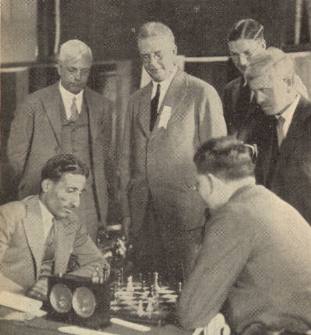
We are grateful to Tim Harding who sent us this link to his research on Tylor
From Wikipedia:
“Sir Theodore Henry Tylor (13 May 1900 – 23 October 1968)[1] was a lawyer and international level chess player, despite being nearly blind. In 1965, he was knighted for his service to organisations for the blind. He was Fellow and Tutor in Jurisprudence at Balliol College, Oxford for almost forty years.[2]
Born in Bournville, Tylor learned to play chess at age seven. His chess skill increased while he attended Worcester College for the Blind from 1909 to 1918. He studied at Oxford University beginning in 1918, and captained the Oxford University Chess Club. Tylor received First-class Honours in Jurisprudence in 1922 and was made an honorary scholar of Balliol College. The next year, he became a Bachelor of Civil Law and a lecturer at Balliol College. Called to the Bar by the Inner Temple with a certificate of honour, he was made a Fellow at Balliol College in 1928.”
“Tylor competed in twelve British Championships, finishing fourth in his first appearance in 1925. His best result was in 1933, finishing second to Mir Sultan Khan.[2][3] He tied for first at the 1929/30 Hastings Premier Reserves alongside George Koltanowski ahead of Salo Flohr, Josef Rejfiř, Ludwig Rellstab, C.H.O’D. Alexander, Daniël Noteboom, and Milan Vidmar.[2] Tylor played in the top section, the Hastings Premier, nine times beginning in 1930/1. His best finish was 6th= in 1936/7.[3] He was first reserve for the English team at the Hamburg 1930 Chess Olympiad.
Tylor won the British Correspondence Chess Championship in 1932, 1933, and 1934.[1][2] He shared 5–6th at Margate 1936 with P. S. Milner-Barry, but he won their individual game and drew with 2nd- to 4th-place finishers José Raúl Capablanca, Gideon Ståhlberg, and Erik Lundin (Salo Flohr won). Although he finished 12th at Nottingham 1936, he had the best score of the British participants, ahead of C. H. O’D. Alexander, G. A. Thomas, and William Winter.[5] Mikhail Botvinnik noted that Tylor was using a tactile chess board that he incessantly fingered, as well as a device for counting the number of moves made.”
“Tylor was President of the Midland Counties’ Chess Union from 1947 to 1950, but his work for the university and for the welfare of the blind limited the time he had to devote to chess. Tylor also enjoyed bridge.[3] He died in Oxford on 23 October 1968.”
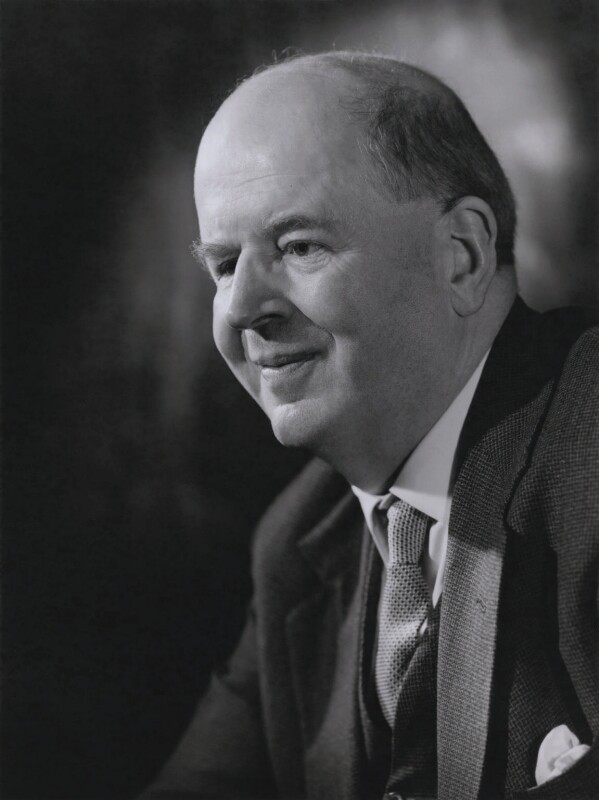
BCN offers birthday greetings to GM John Shaw
John K Shaw was born on Wednesday, October 16th, 1968 in Irvine, North Ayrshire, Scotland.
On this day Americans Tommie Smith (gold 19.83 WR) and John Carlos (bronze) famously give the Black Power salute on the 200m medal podium during the Mexico City Olympics to protest racism and injustice against African-Americans.
He became a FIDE Master in 1994 at the age of 26. Five years later in 1999 he became an International Master and finally a Grandmaster in 2006 at the age of 38.
He won the Scottish Championship in 1995 (with IM Steve Mannion and GM Colin McNab), outright in 1998 and in 2000 with AJ Norris.
Not that many years previously (1988) John had a rating of 1700 at the age of 19 and therefore he falls into that rather rare category of GMs who were not strong players as juniors.
According to Felice and Megabase 2020 his peak FIDE rating was 2506 in January of 2002.

John’s FIDE federation is Scotland and is currently ranked fifth in that country.
In 2005 John was interrogated by ChessBase upon his return from Gibraltar.
He acquired his three GM norms at Gibraltar 2003, Calvia Olympiad 2004 and 4NCL Season 2005/6.
According to ChessBase (in 2005) :
“IM John Shaw has written two books for Everyman Chess and co-edited Experts vs. the Sicilian. He has represented Scotland on many occasions, recently in the Olympiad in Calvià, where he obtained his second GM-norm. As John has once had 2500 in Elo, it is his hope that he will complete his Grandmaster title in 2005 with a third GM-norm.
Together with Jacob, John constitutes two thirds of the new chess publisher Quality Chess Europe which has published Experts vs. the Sicilian by ten different authors and Learn from the Legends – Chess Champions at their Best by Romanian GM Mihail Marin.”
John plays / has played for 4NCL Alba and his peak ECF grading was 240B in July 2009.
With the white pieces almost exclusively plays 1.e4 and the Ruy Lopez, Exchange Variation.
As the second player John has a wide repertoire versus 1.e4 essaying the Sicilian La Bourdonnais (Löwenthal) and against 1.d4 the Slav is the weapon of choice.
A writer of chess books, John is the Chief Editor of the publishing house Quality Chess and has written the following (amongst others) :
